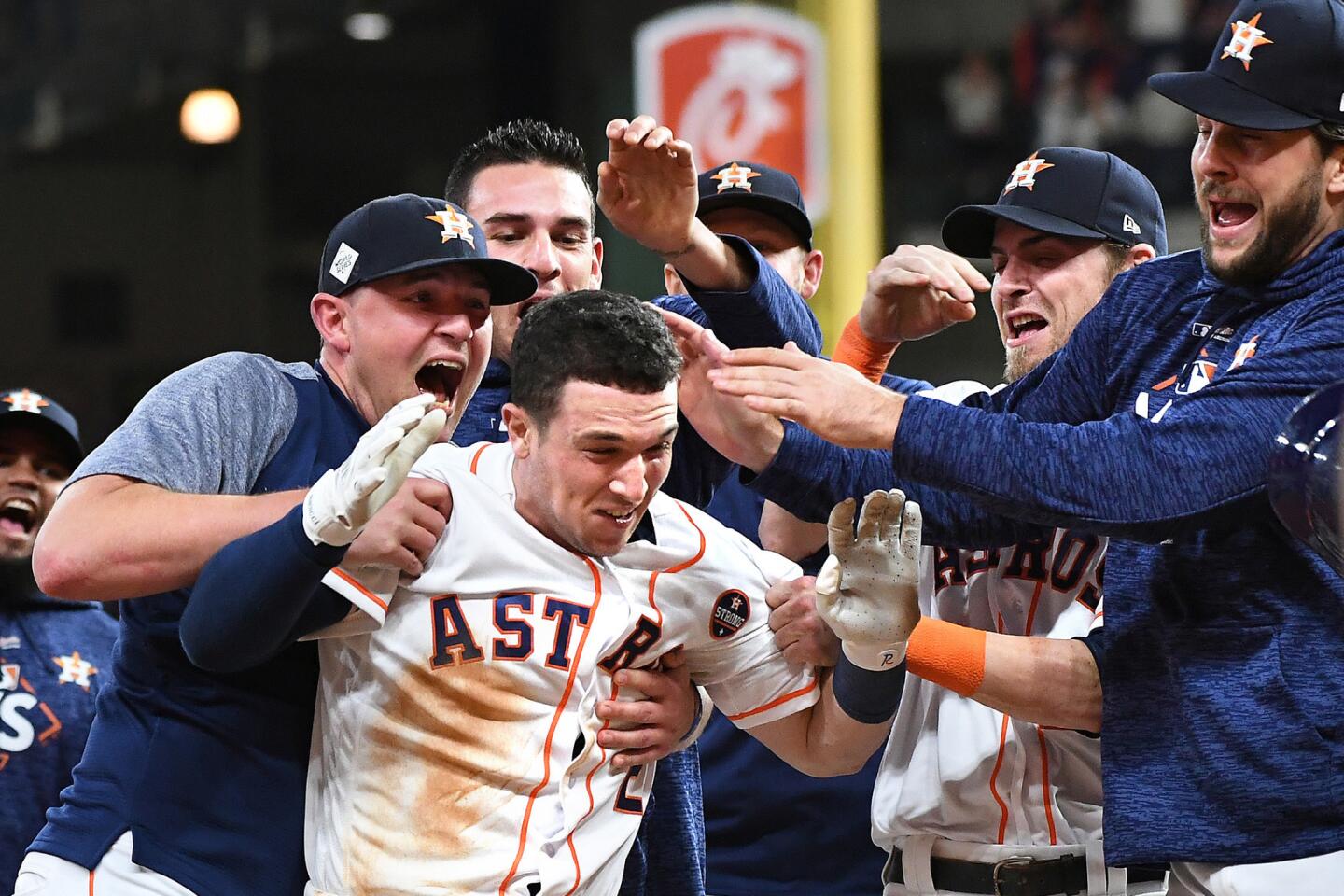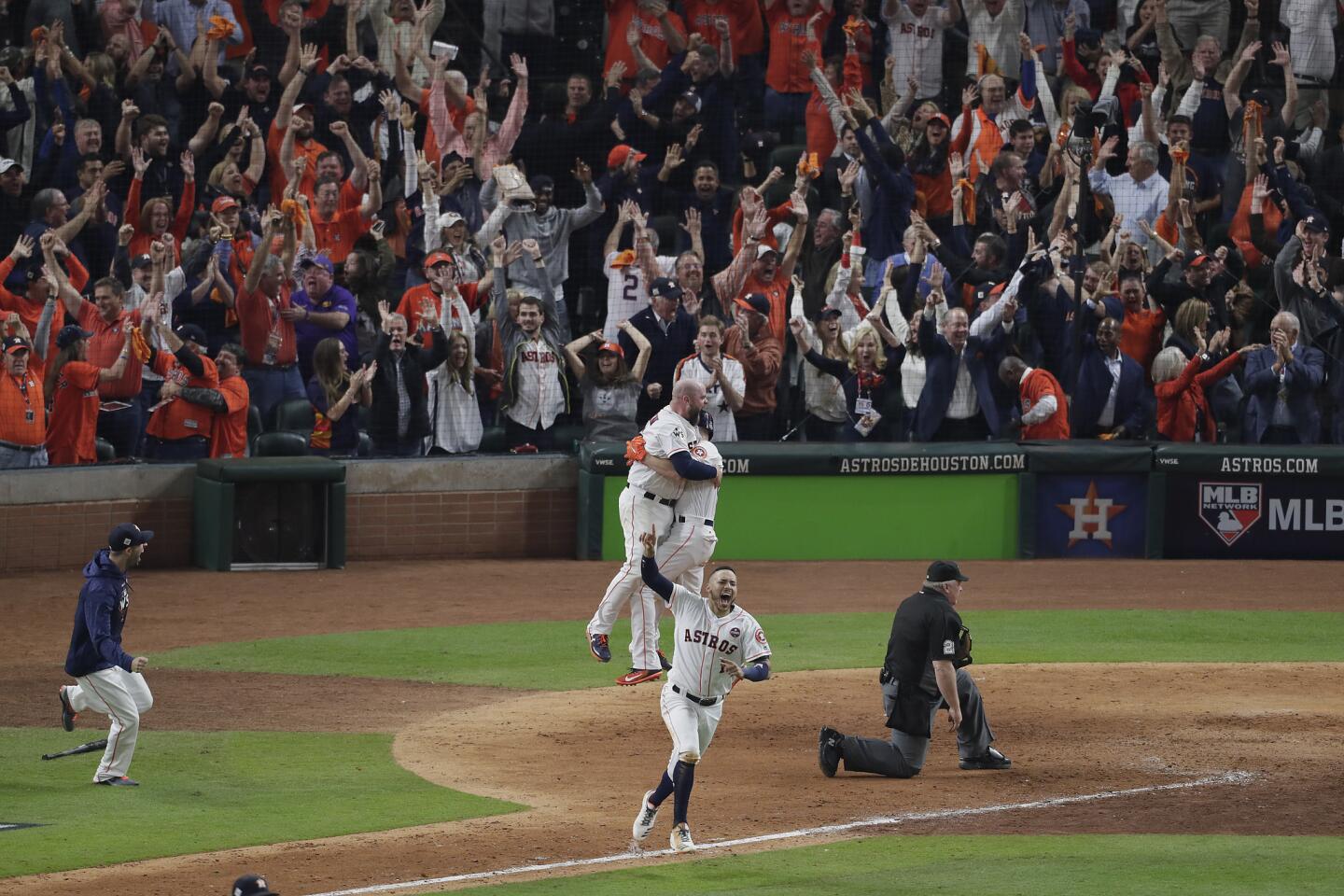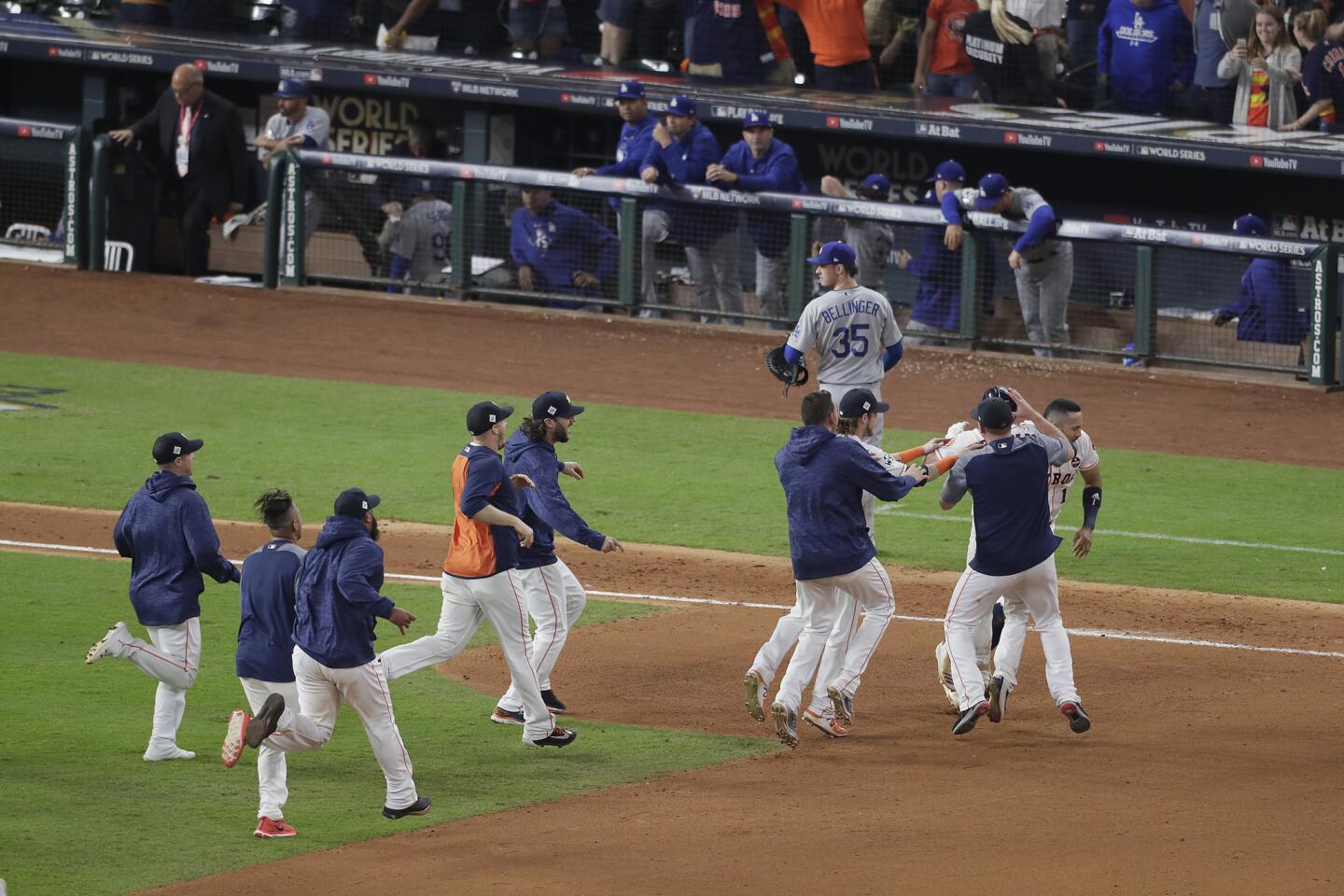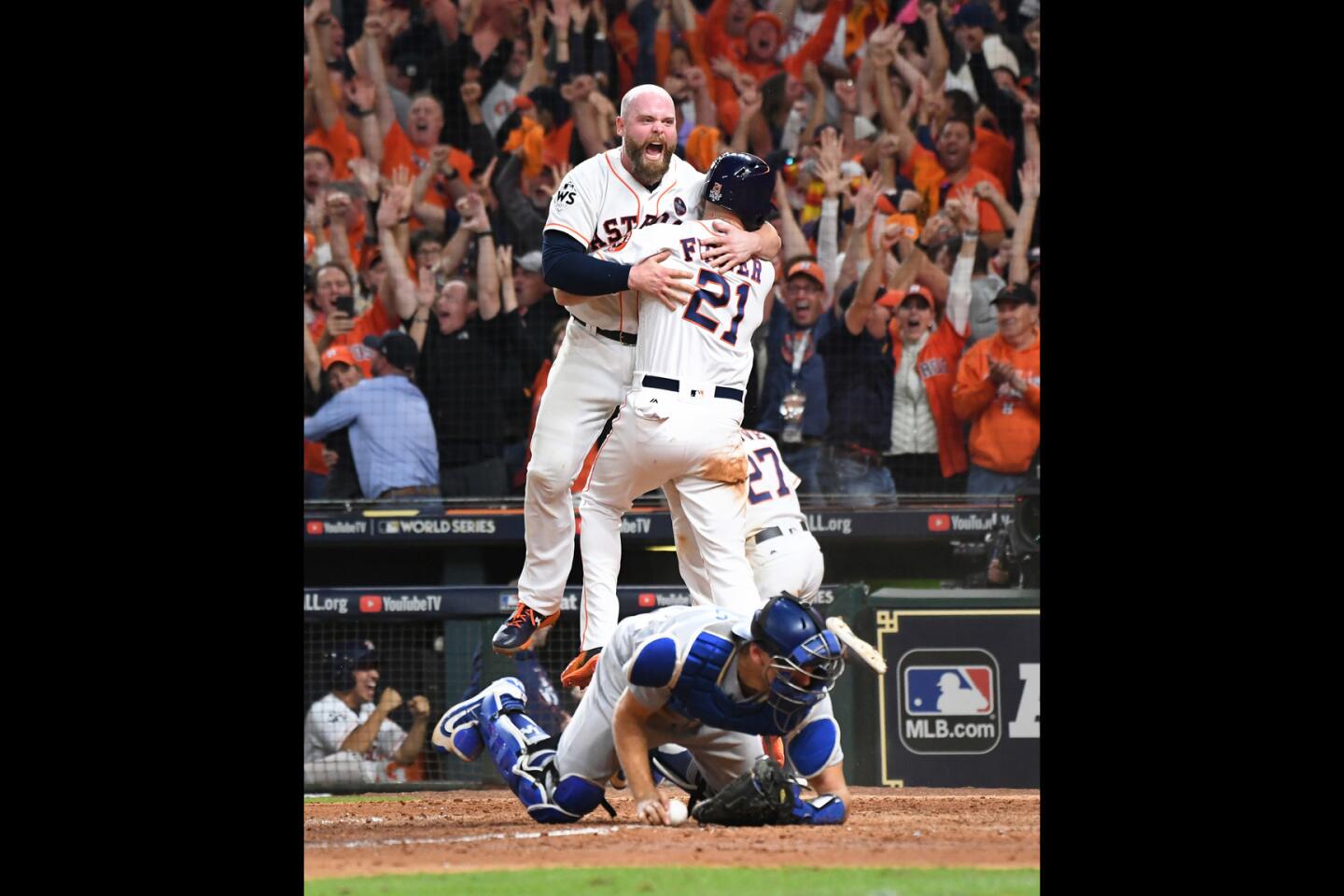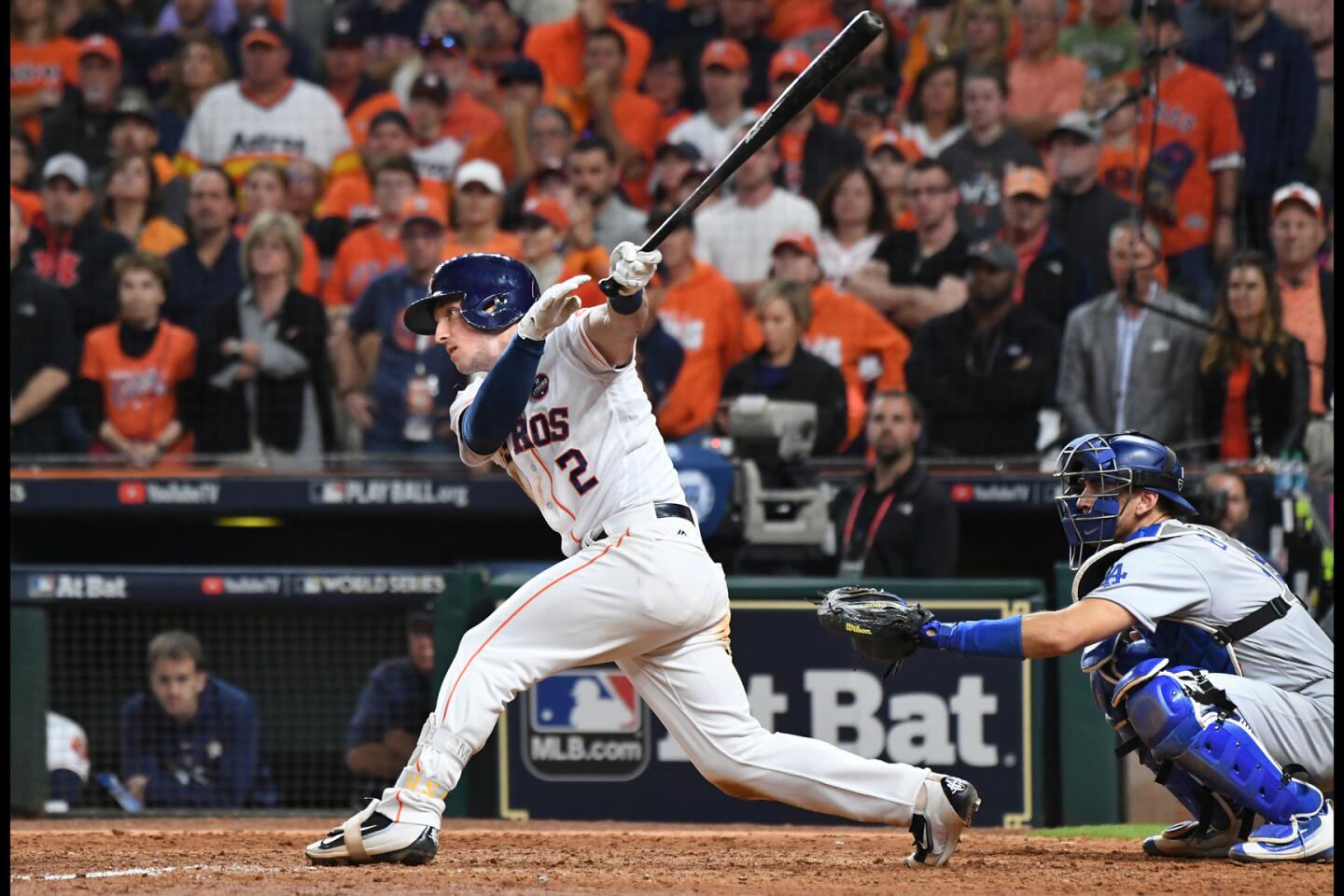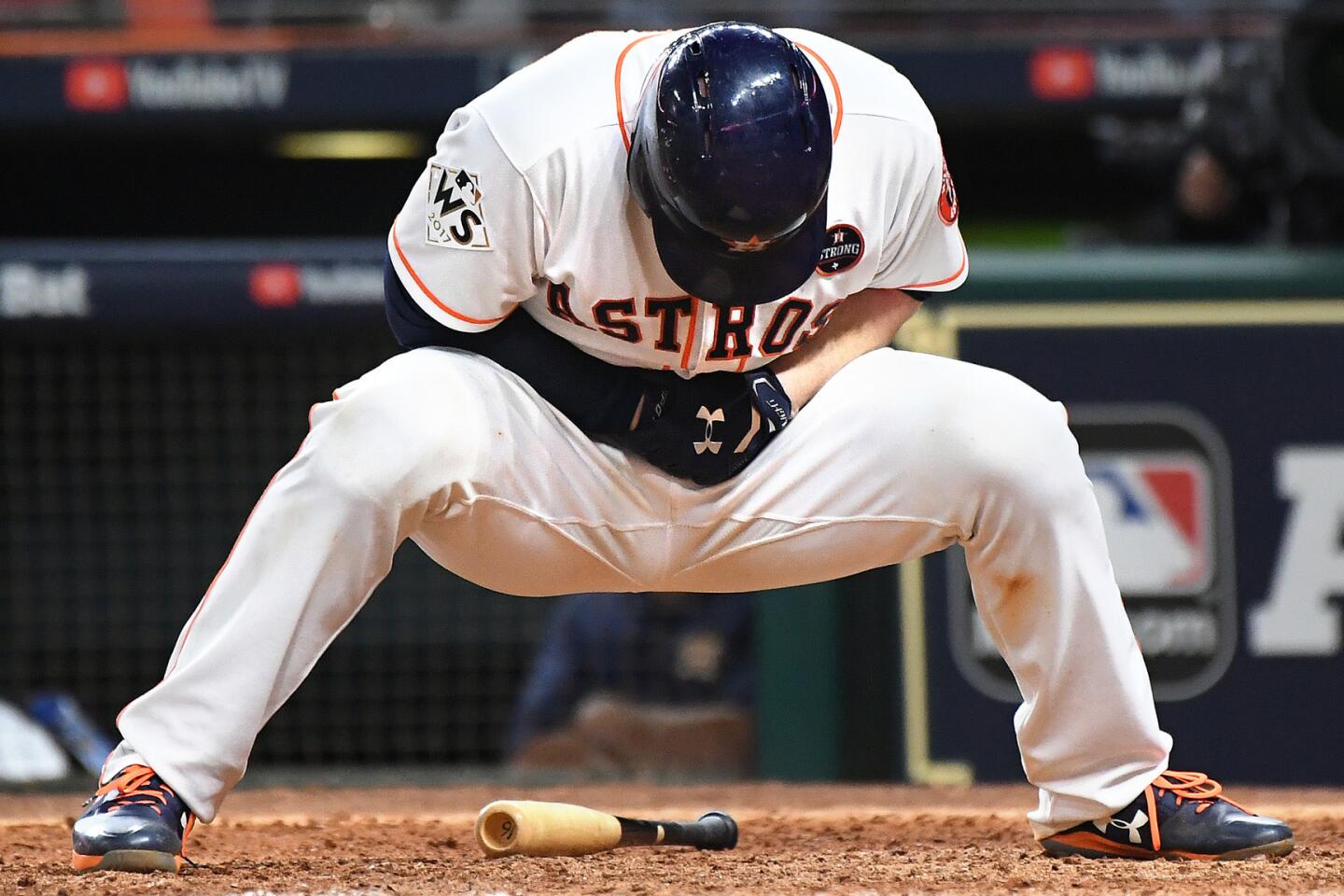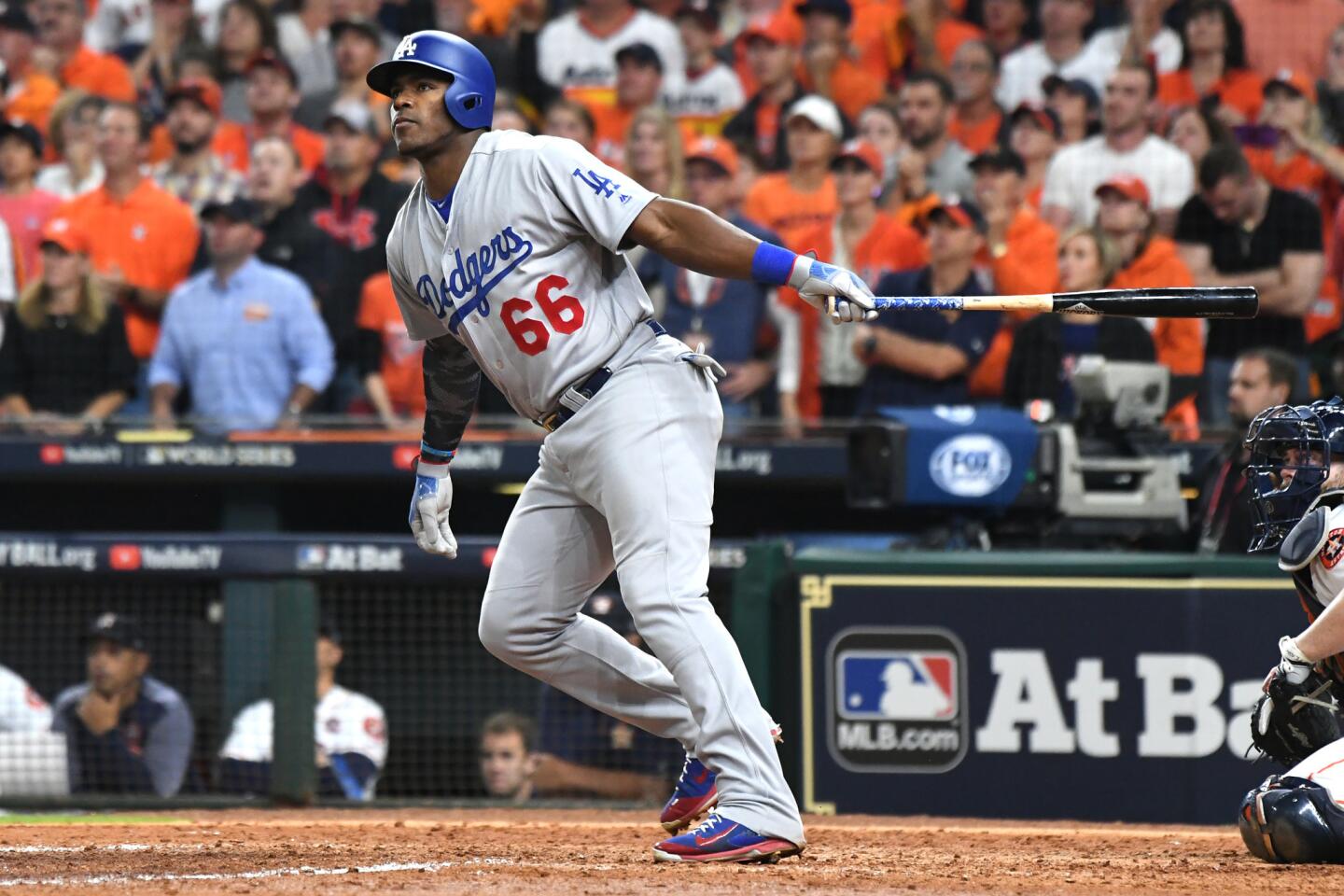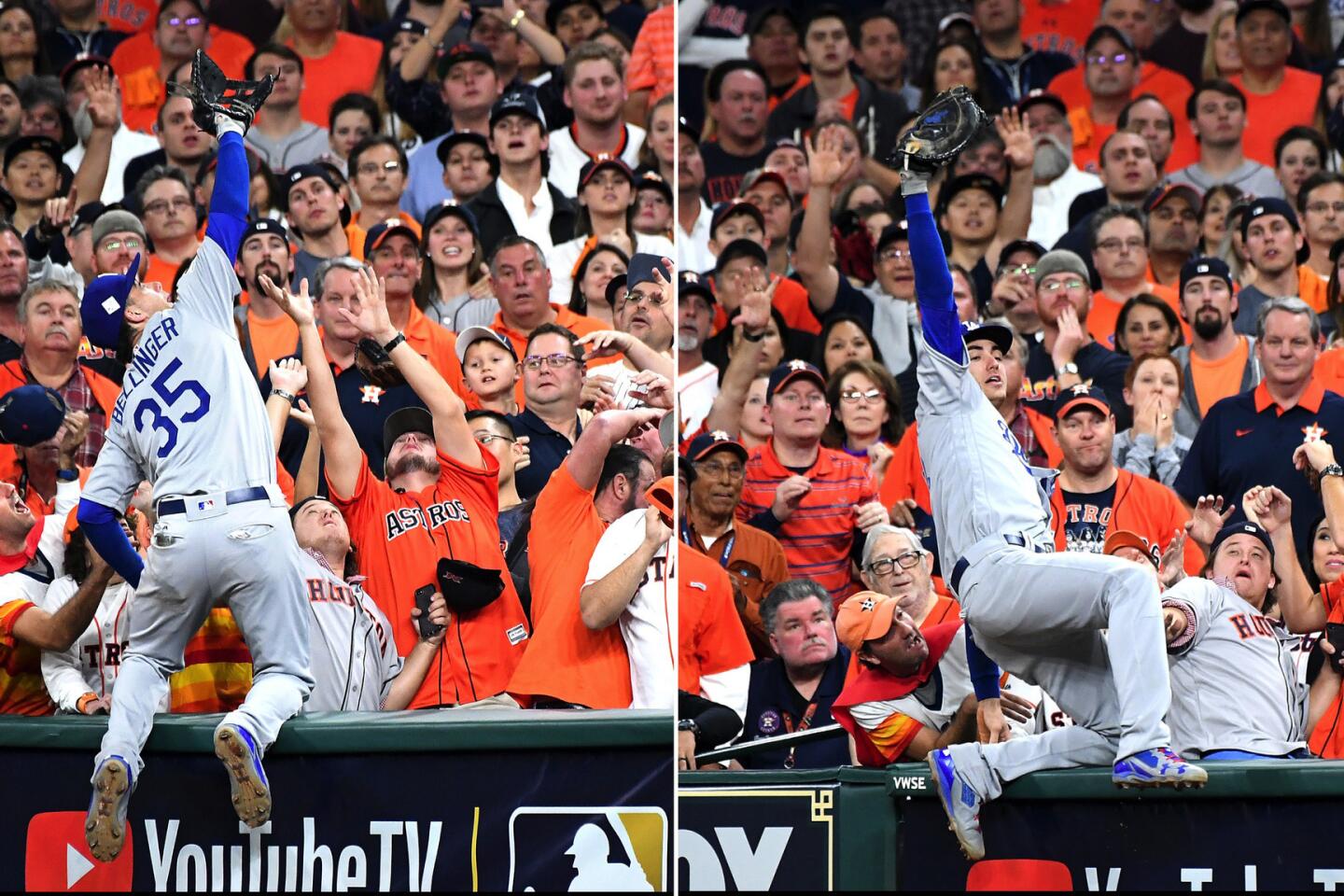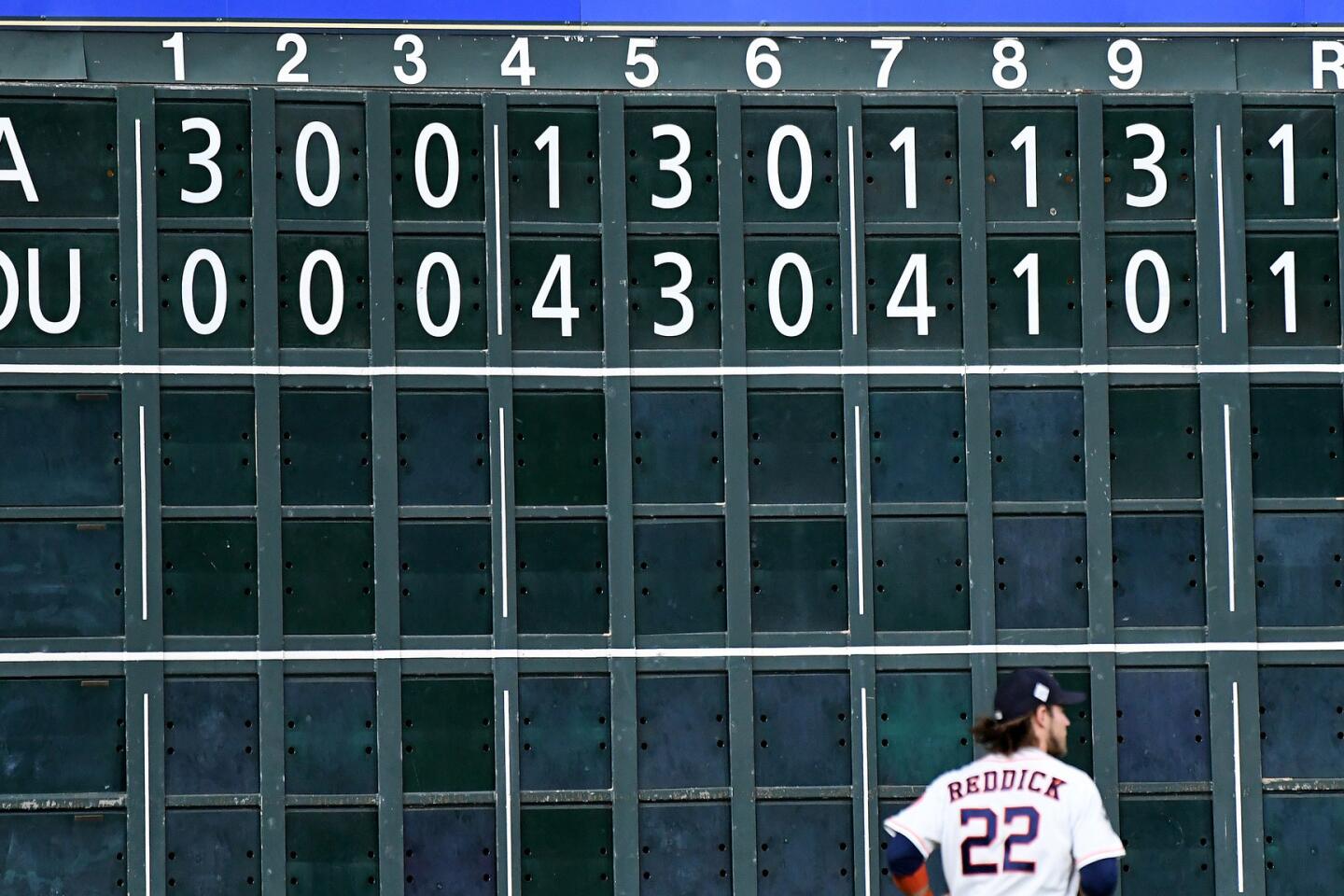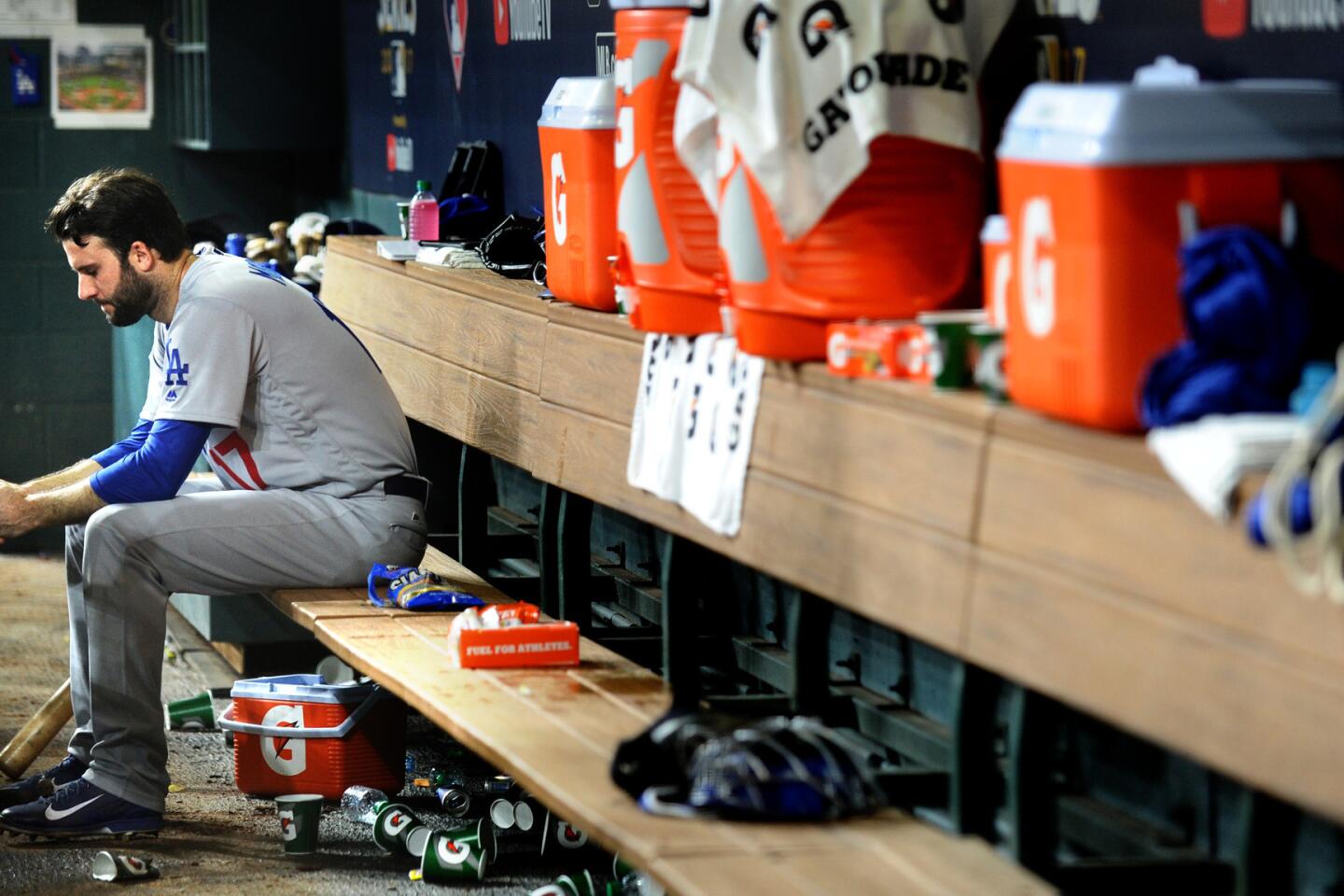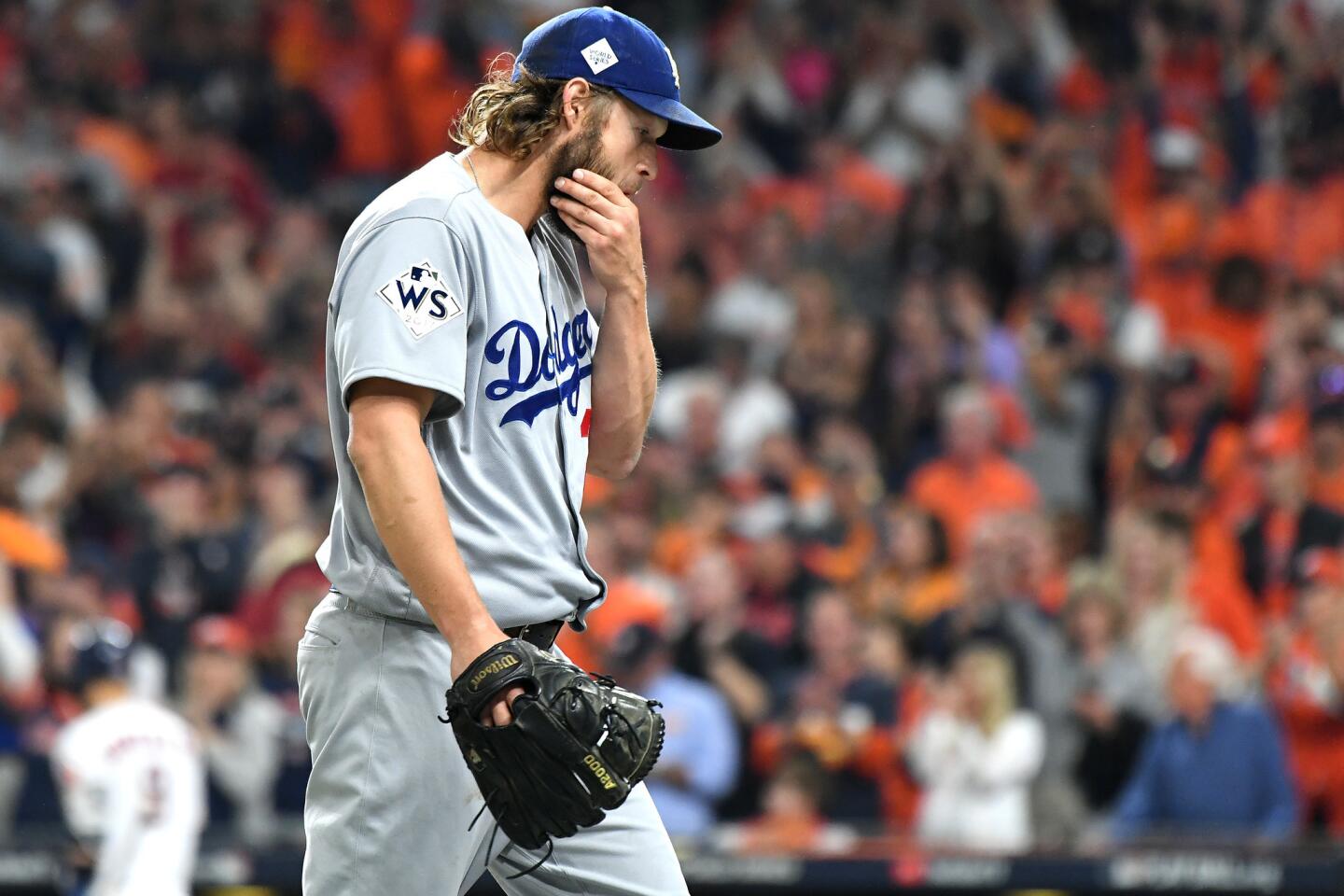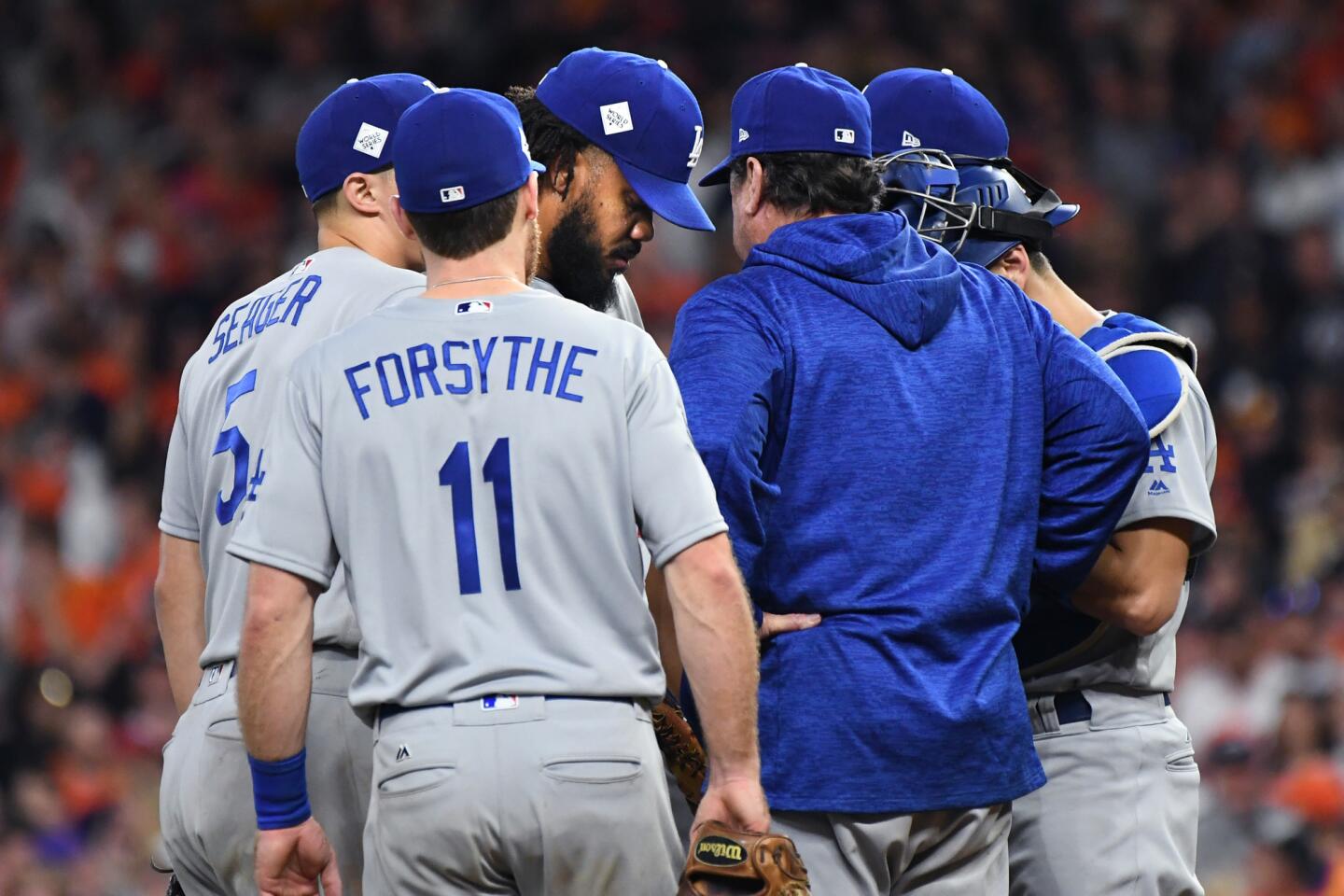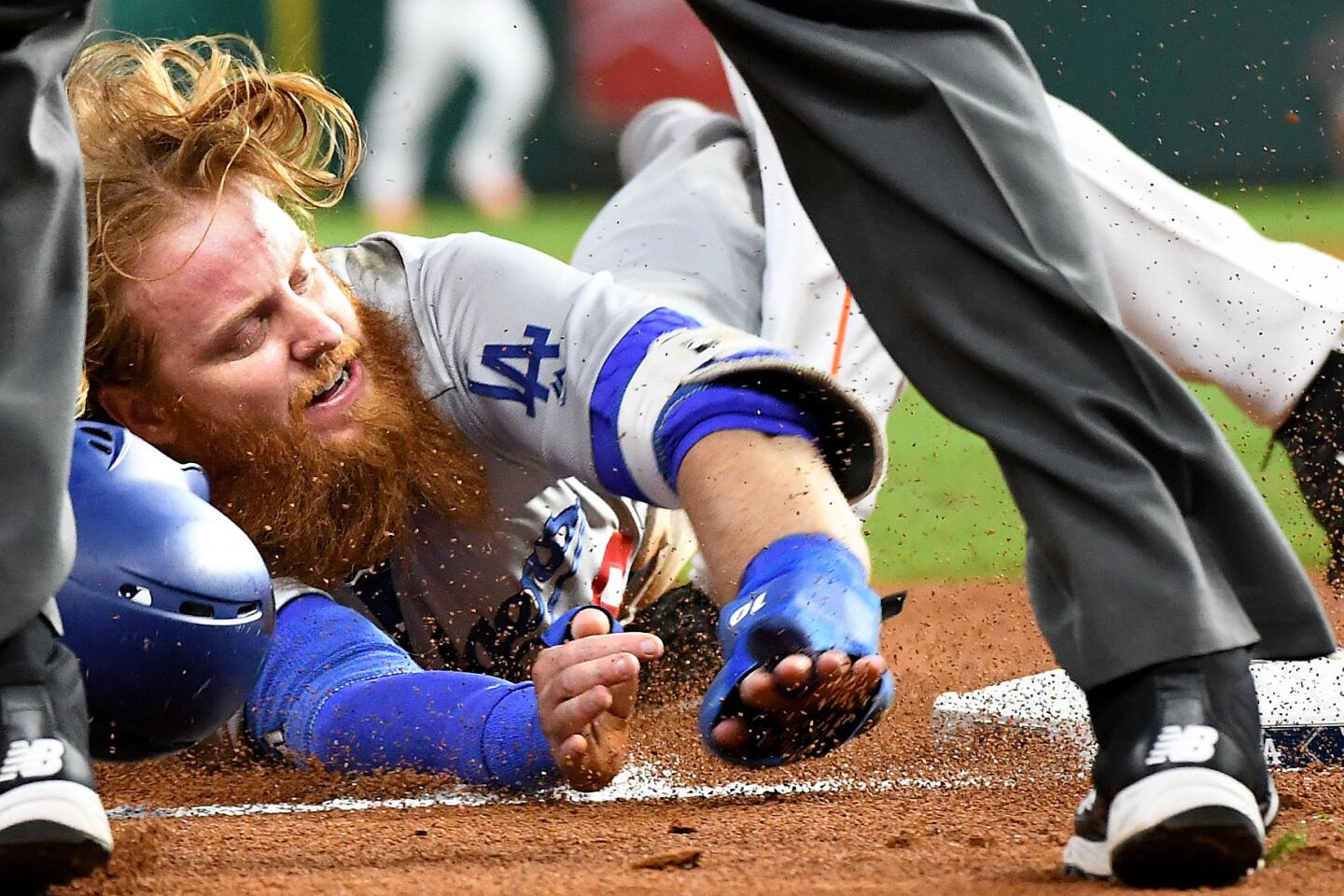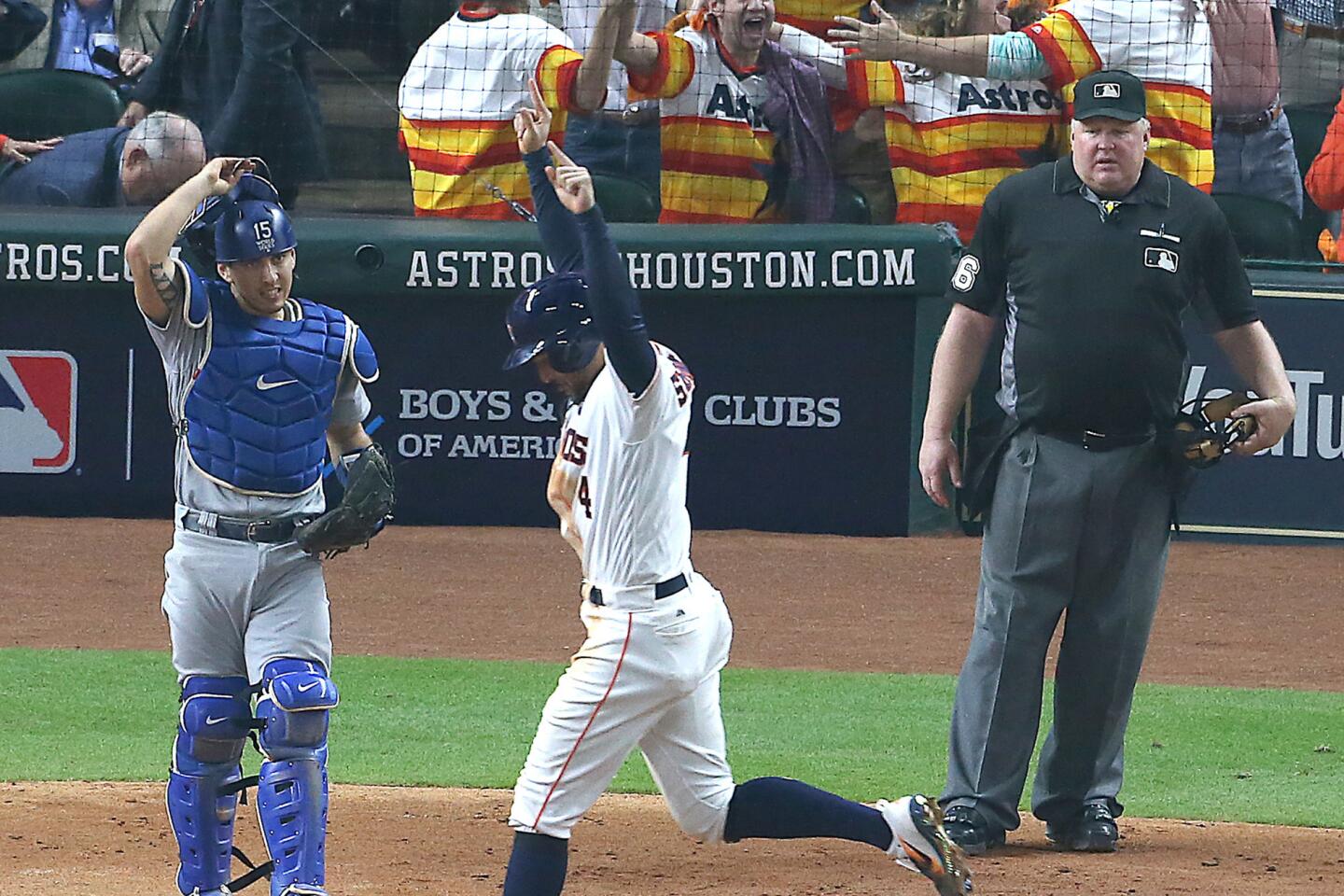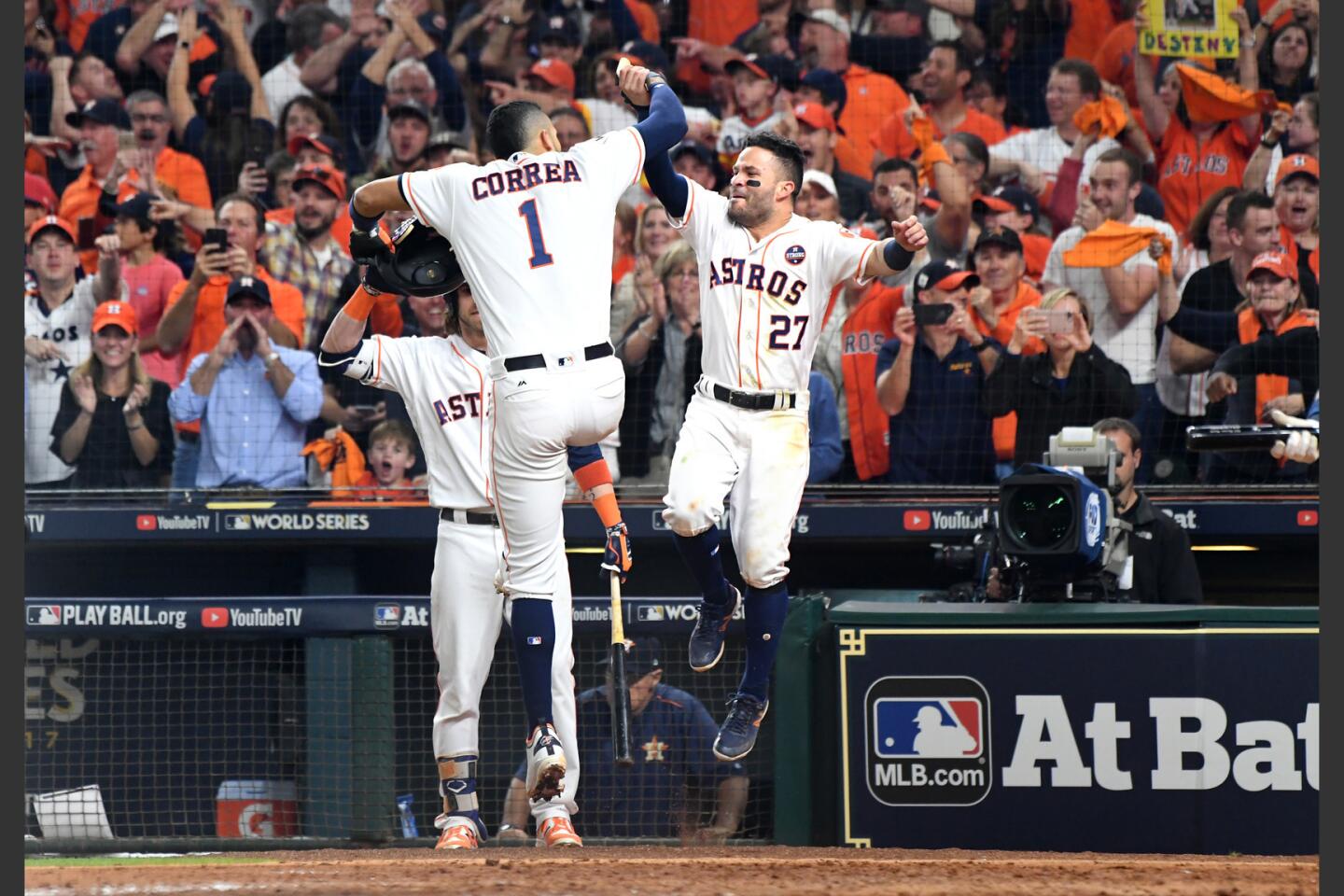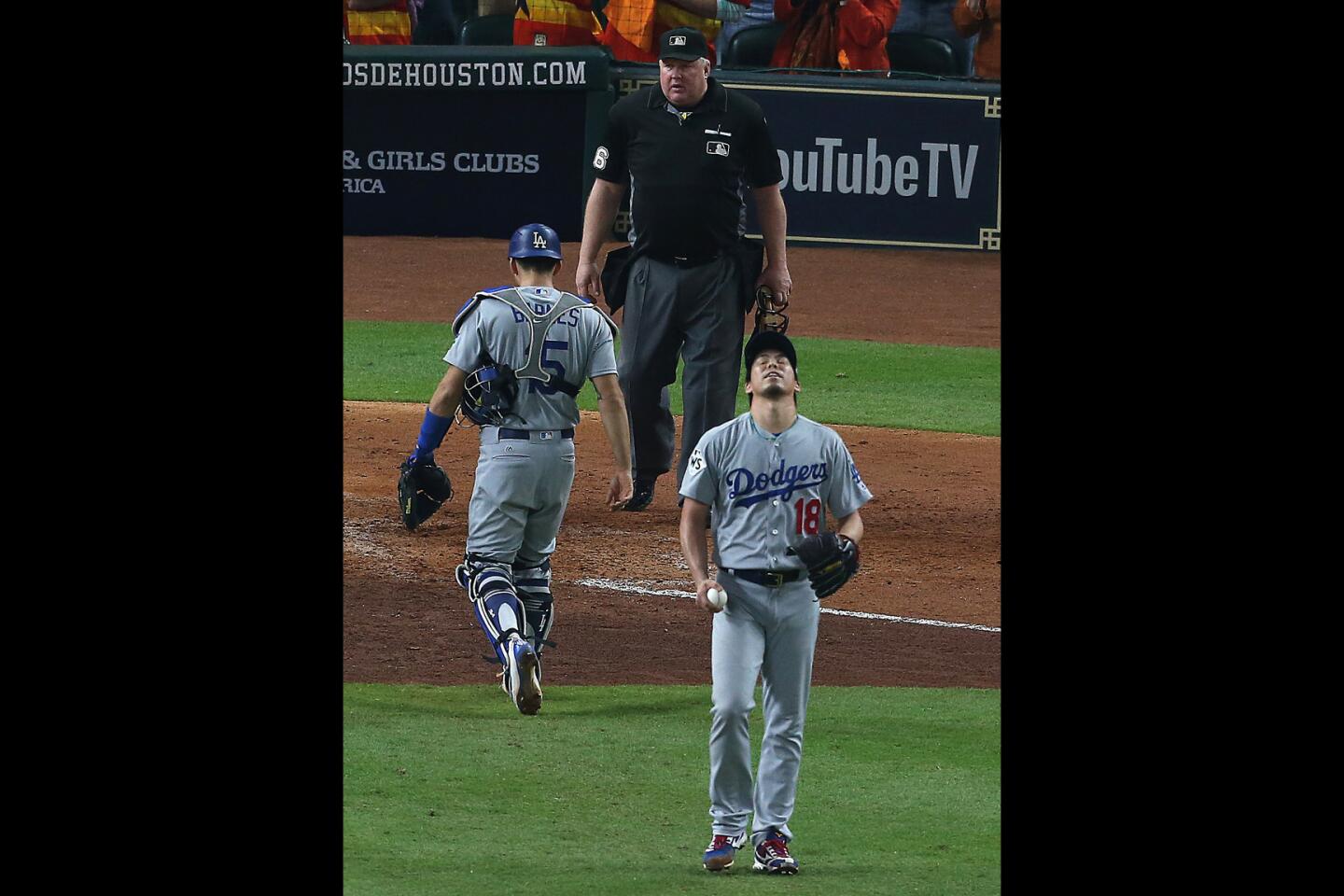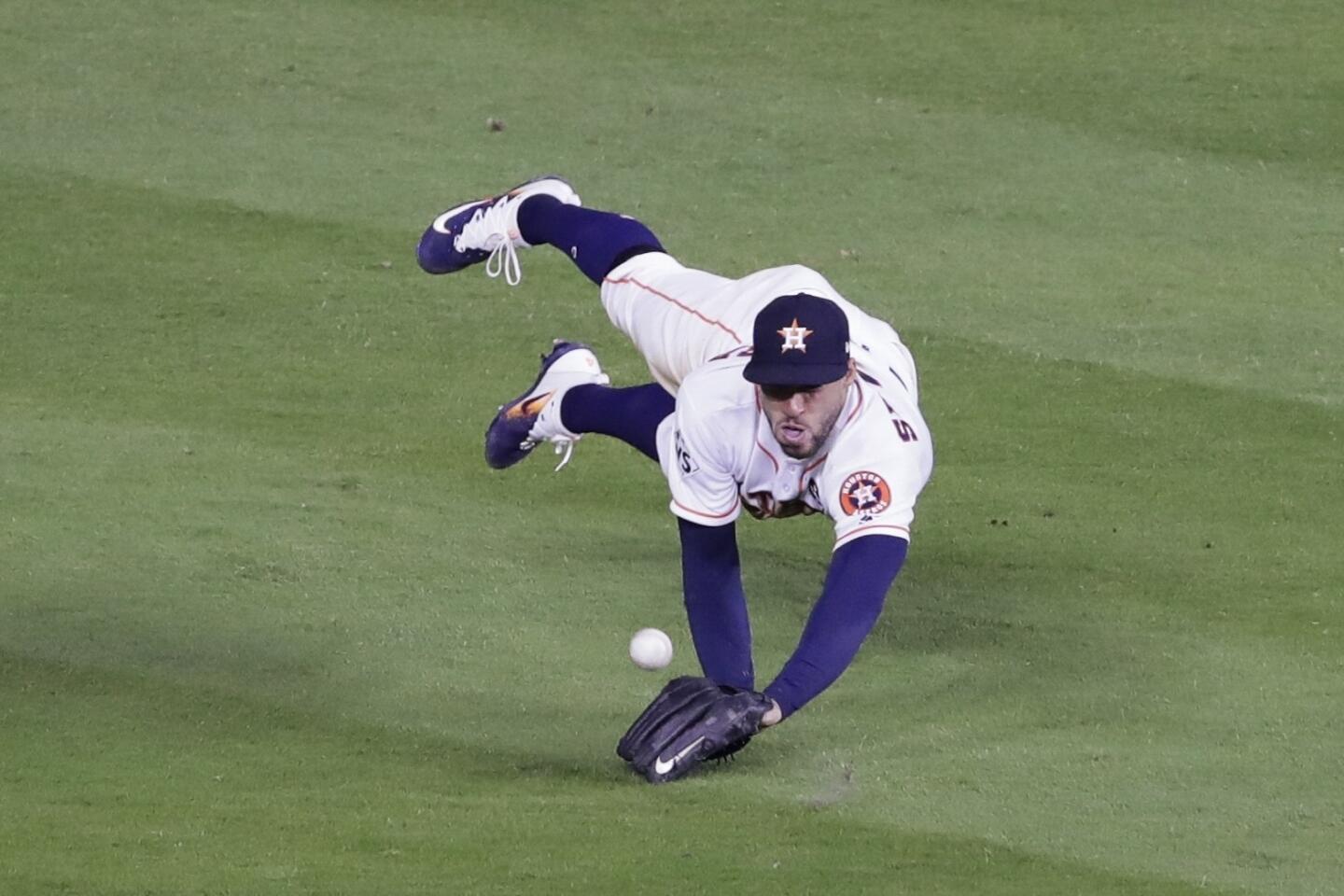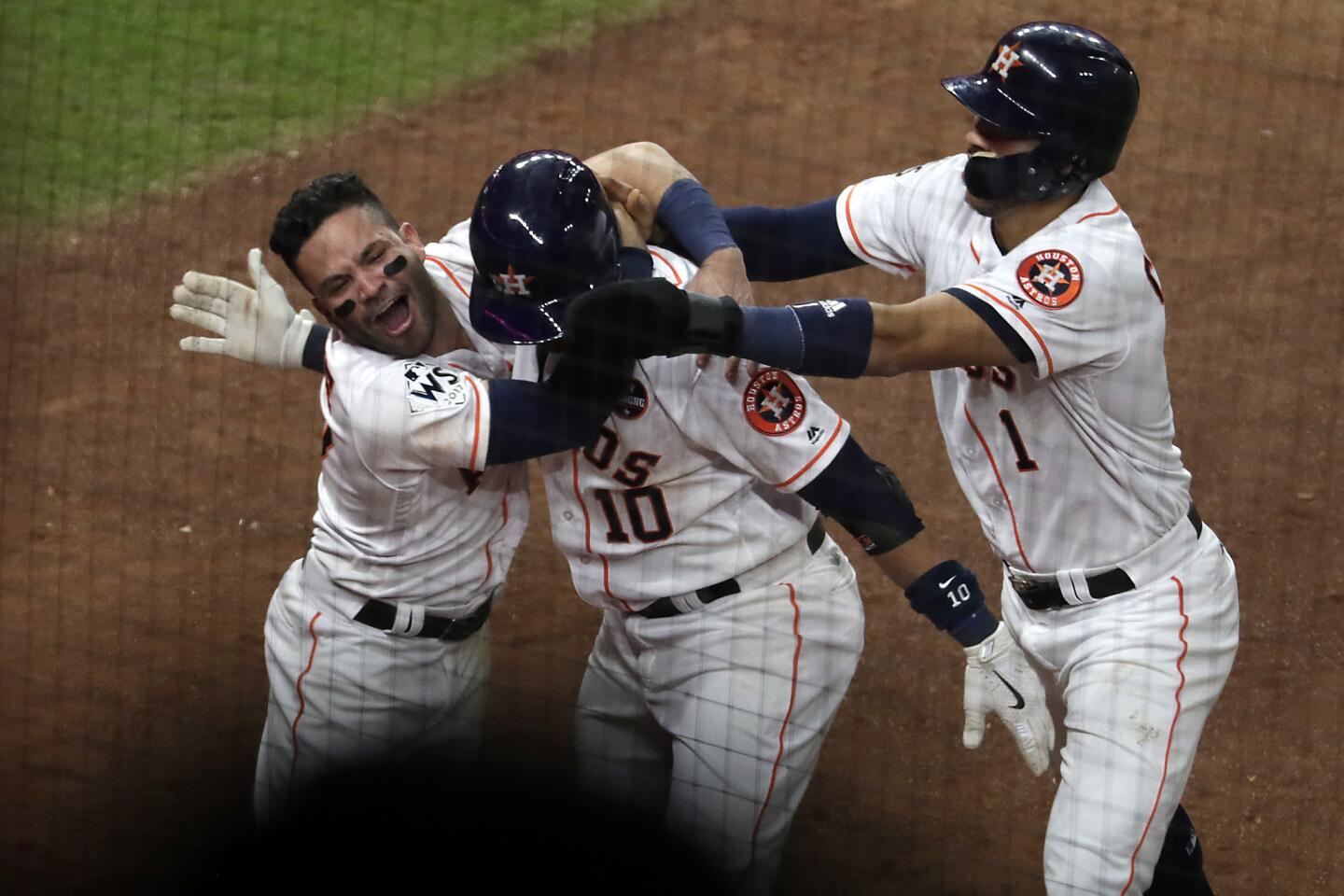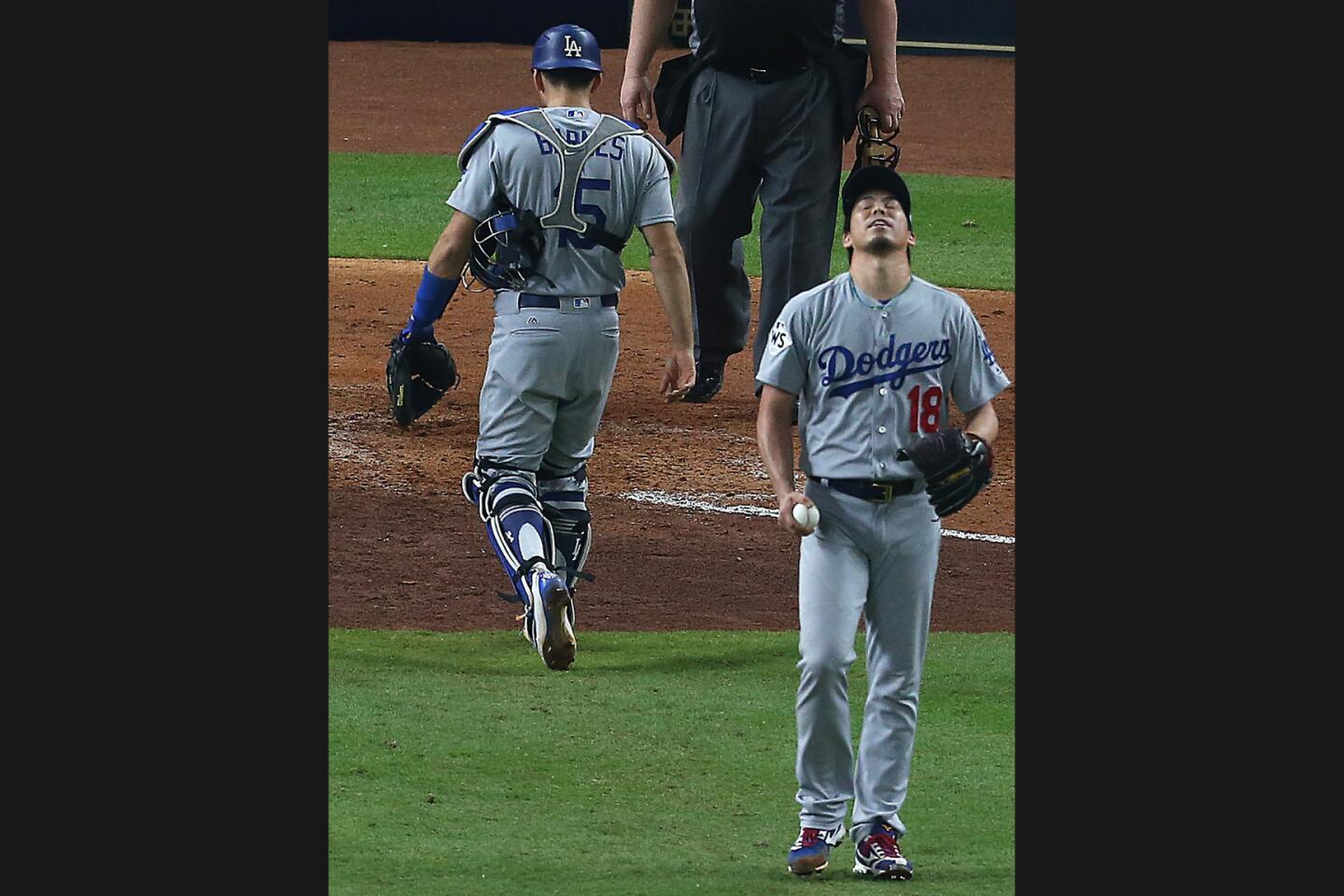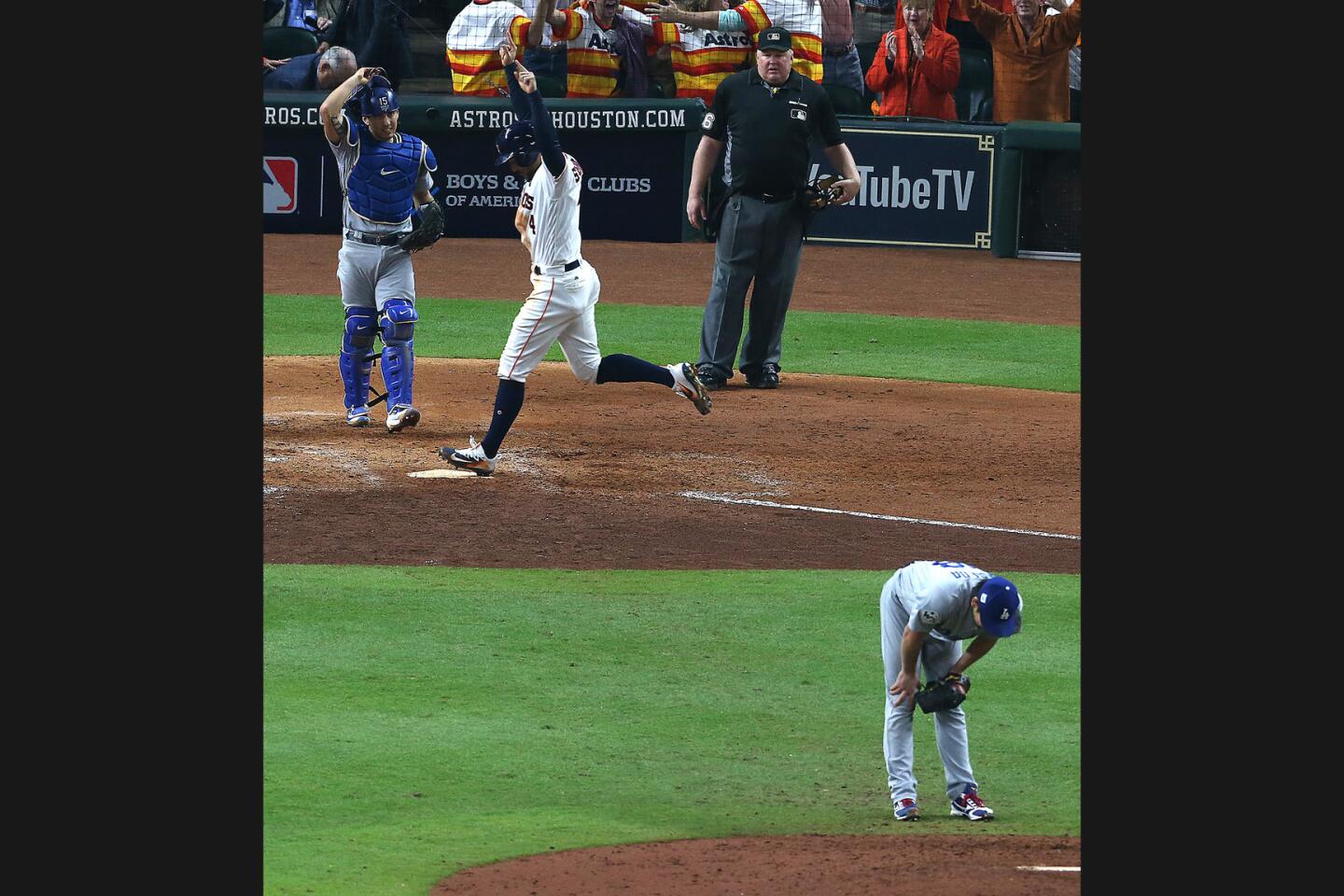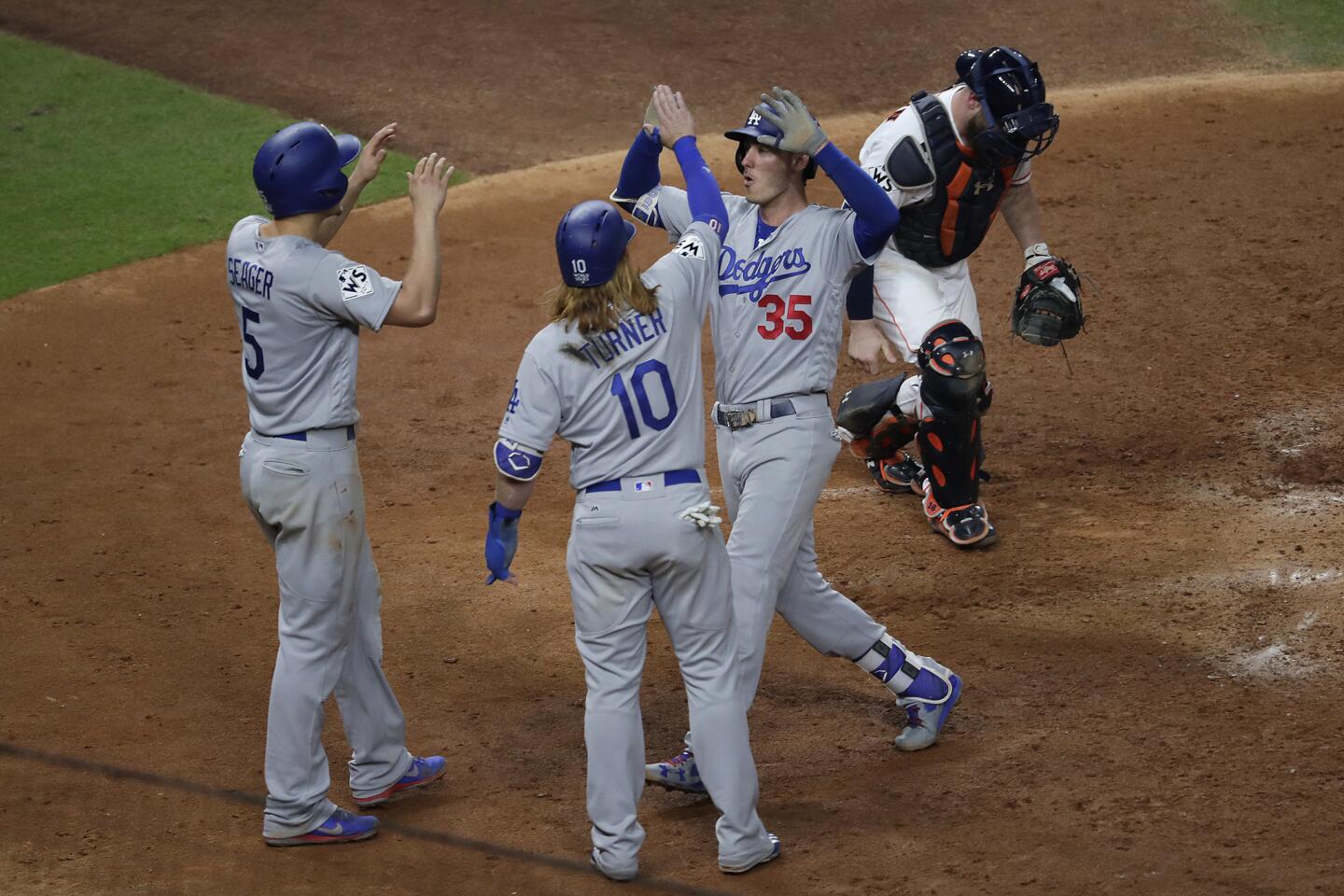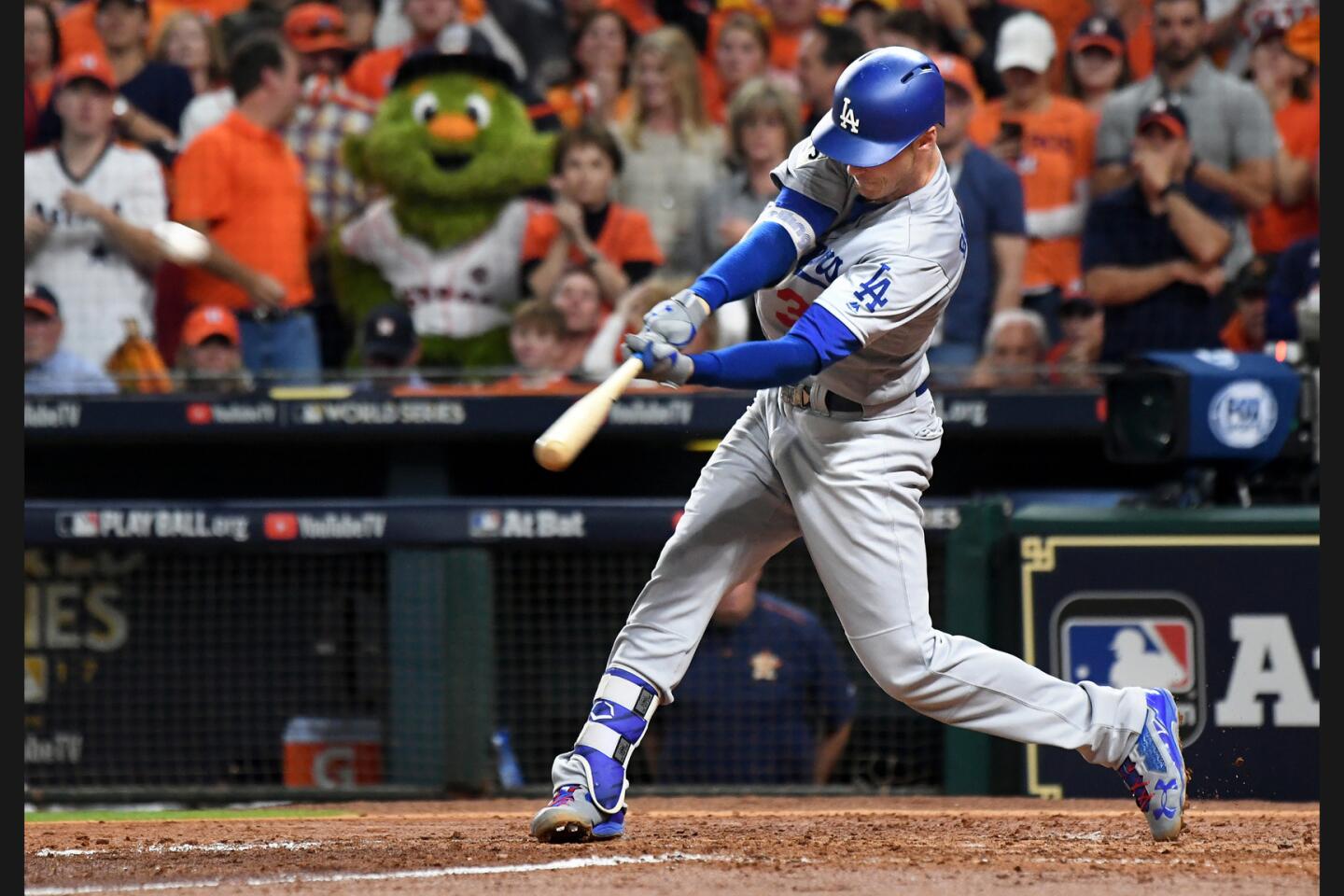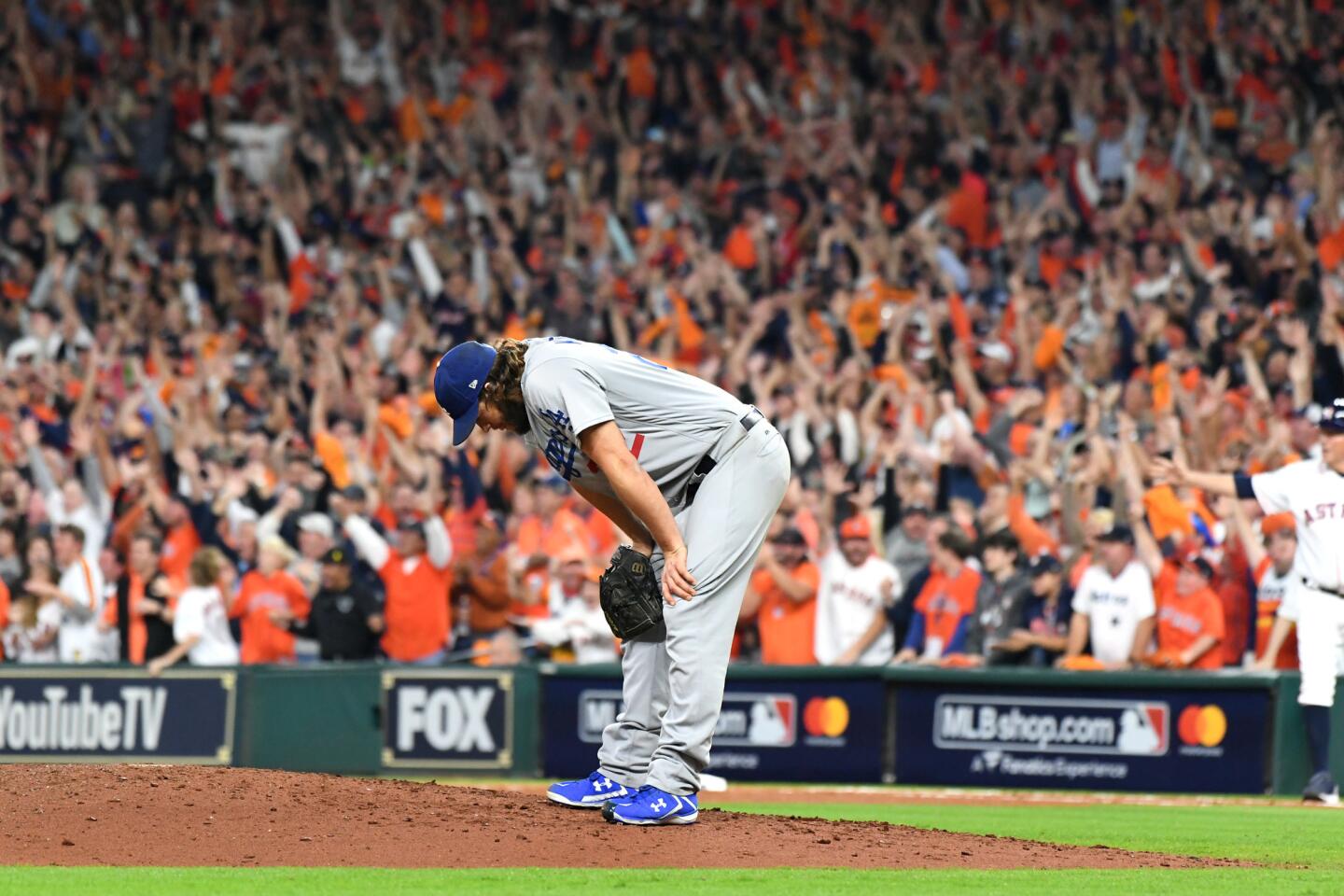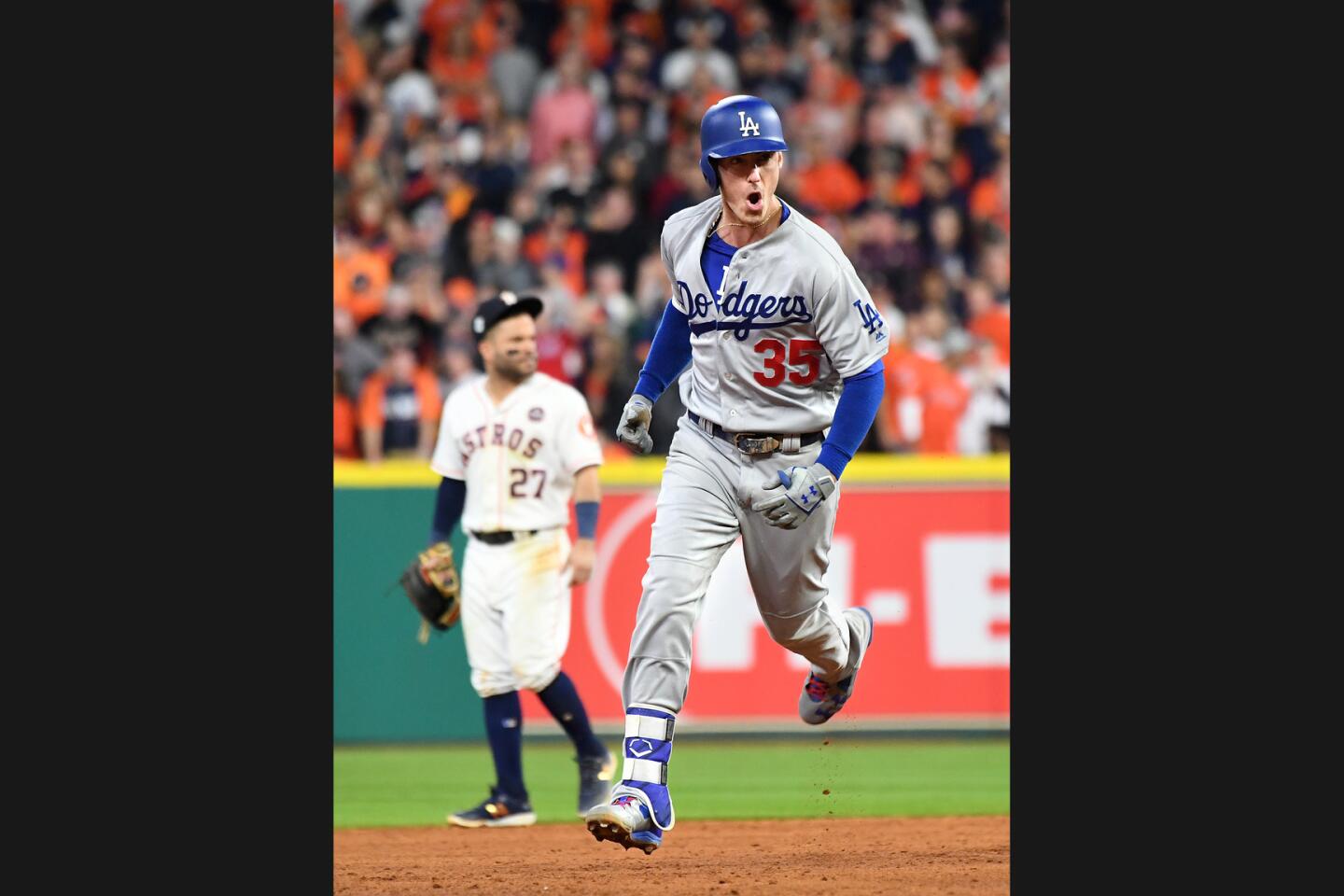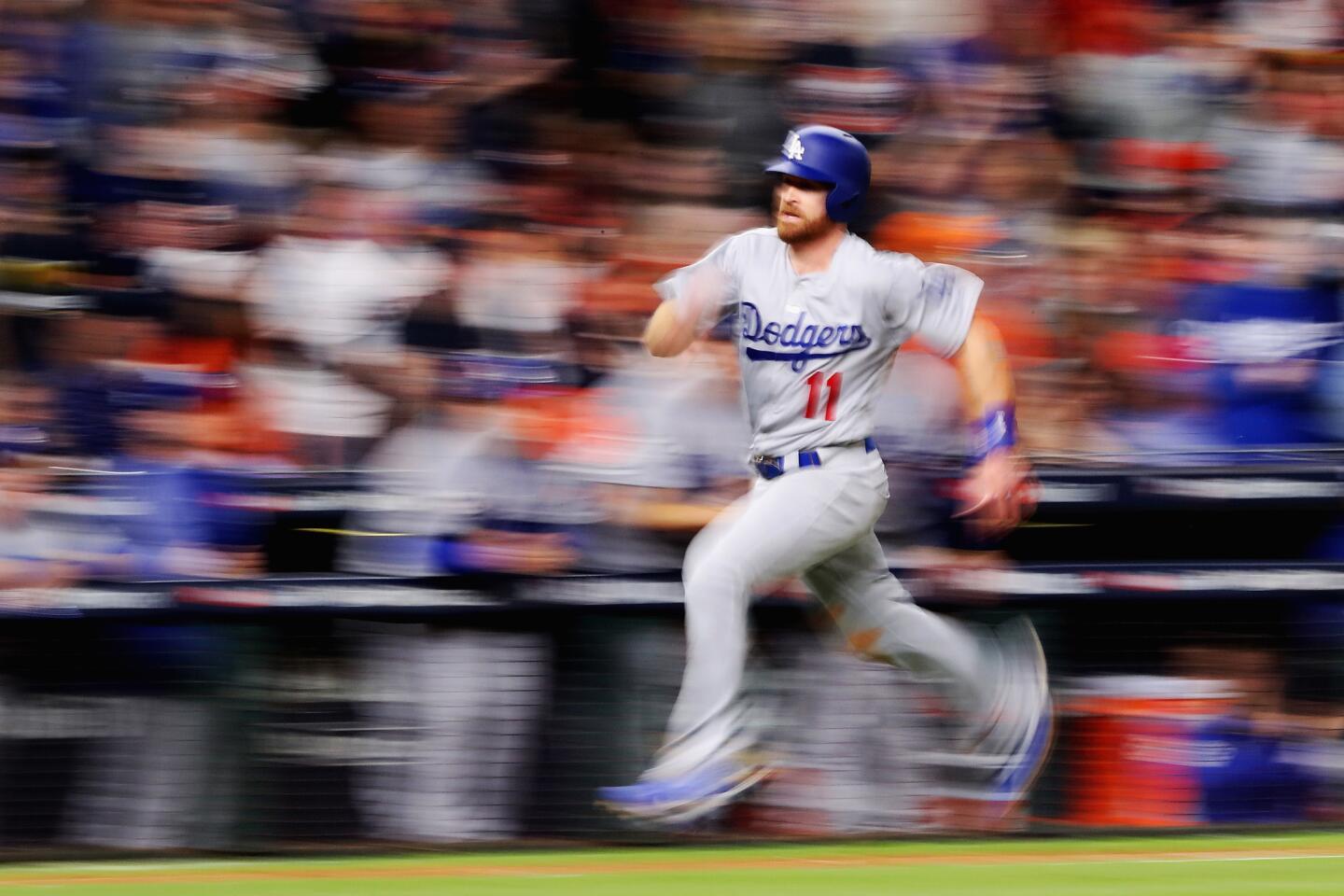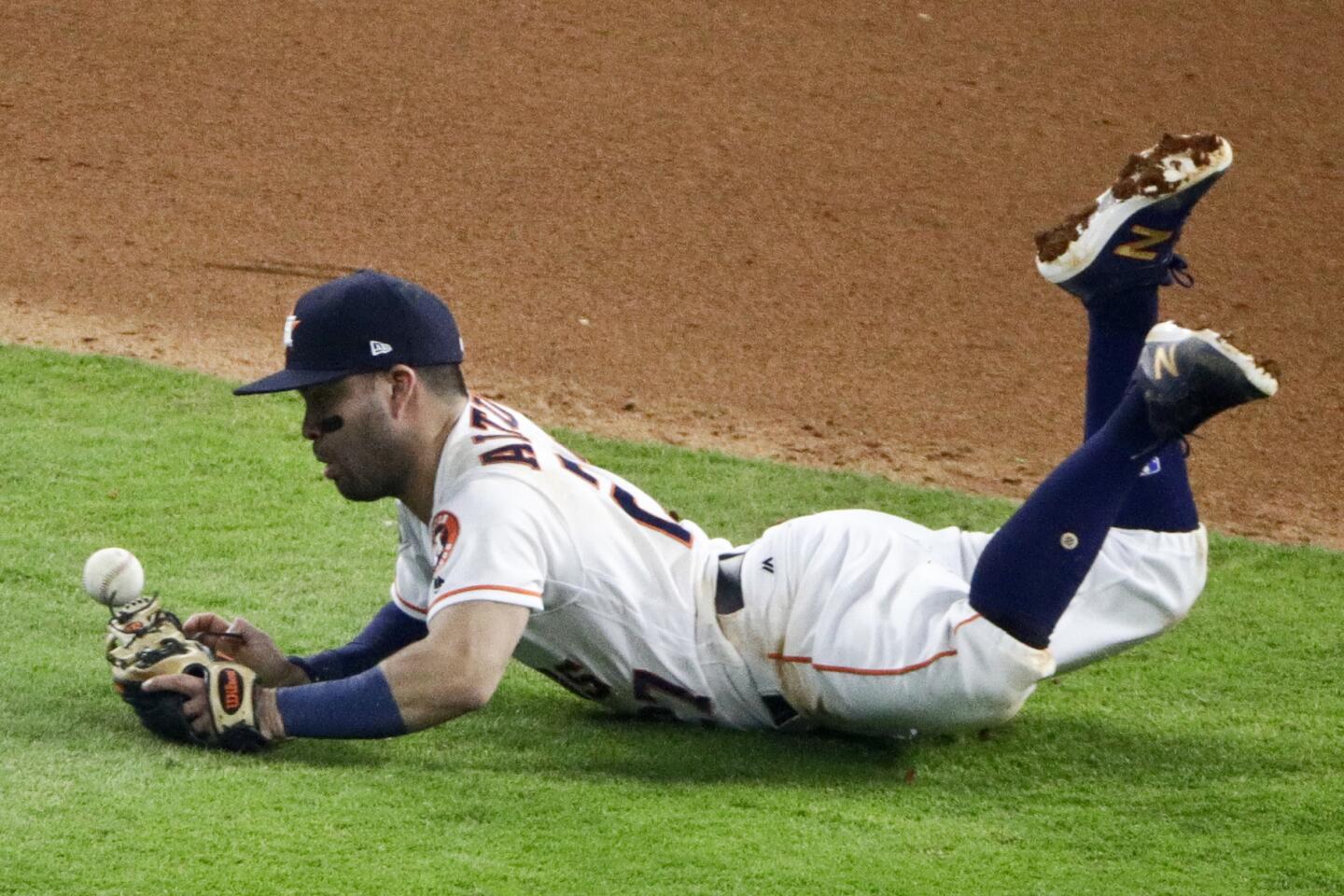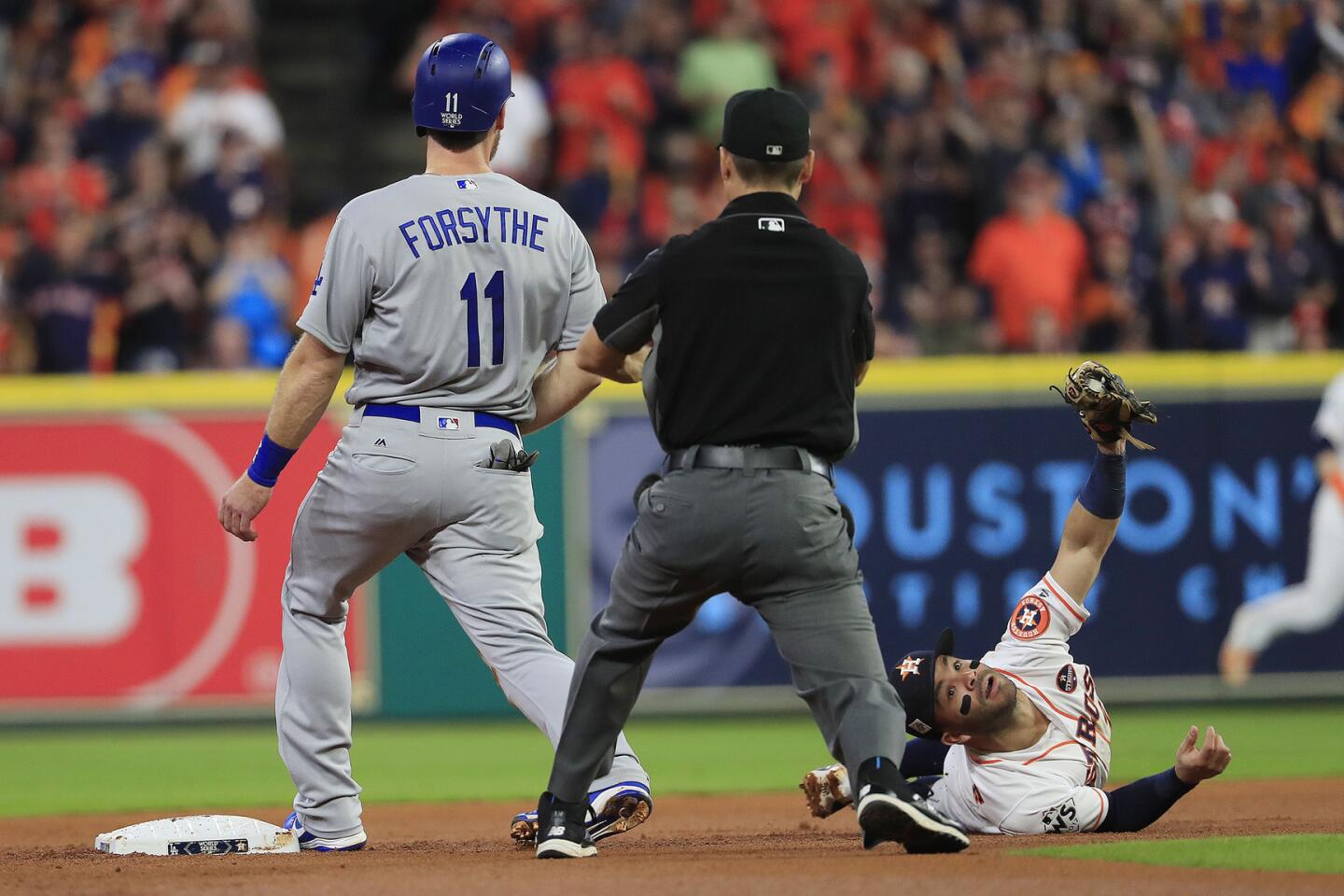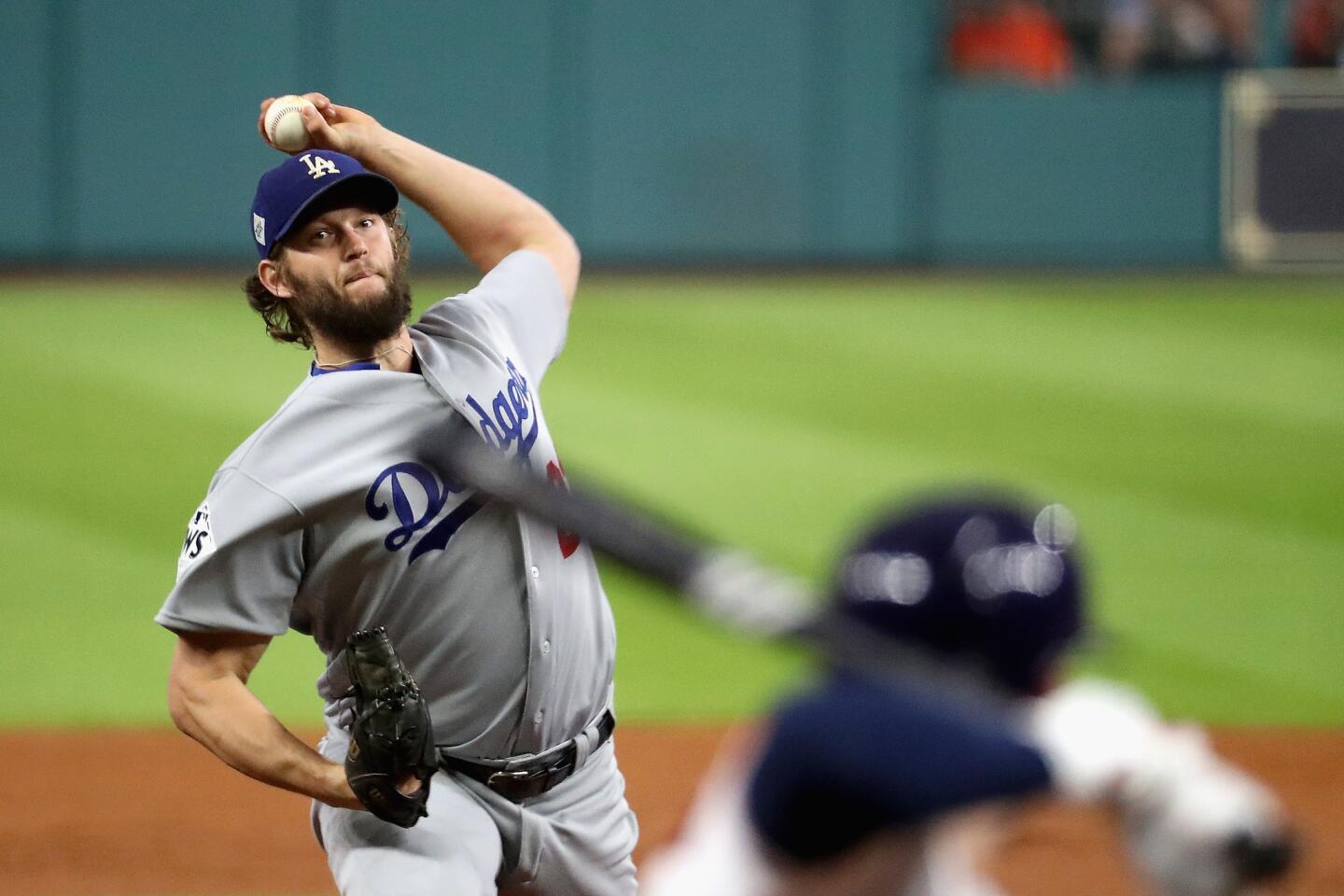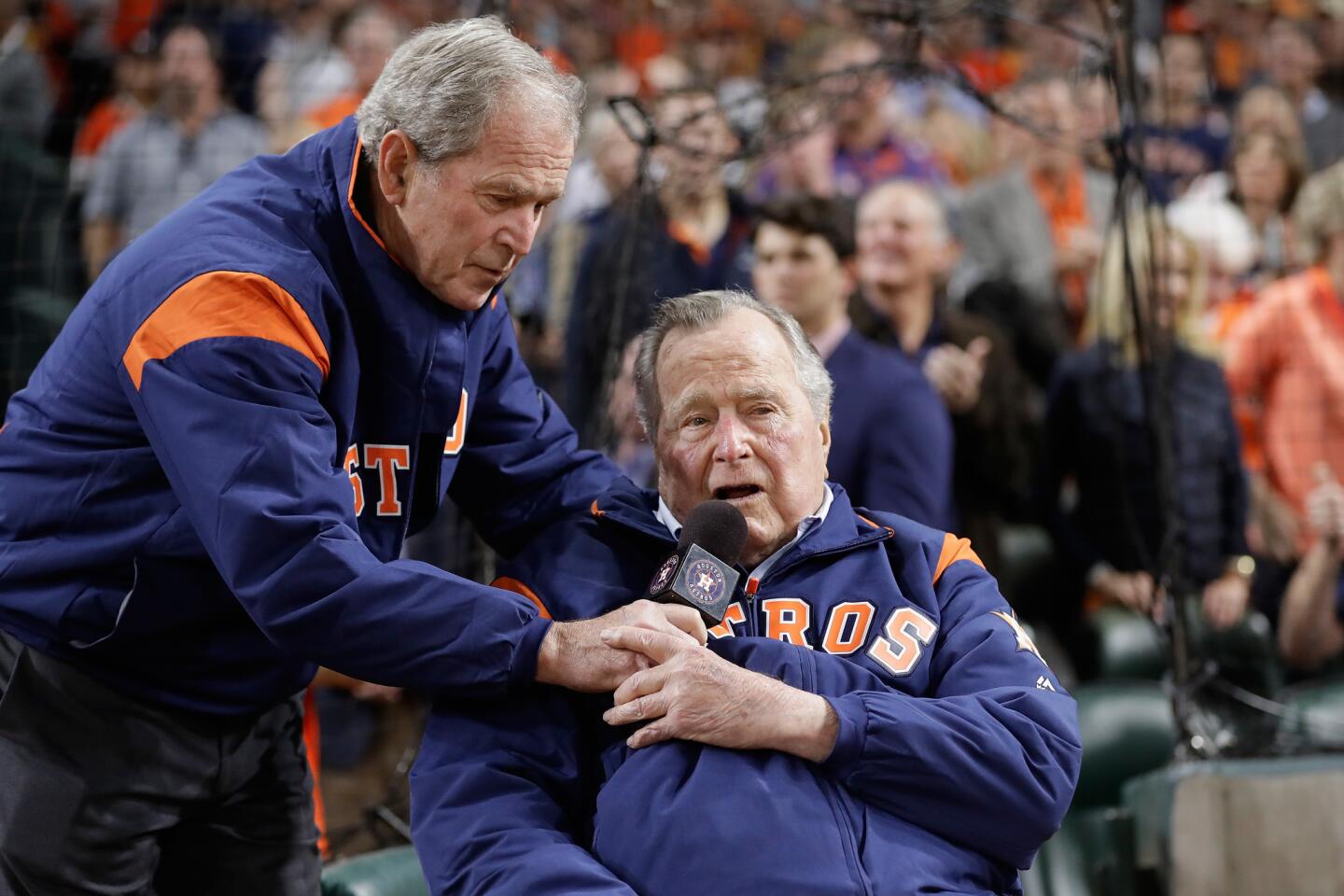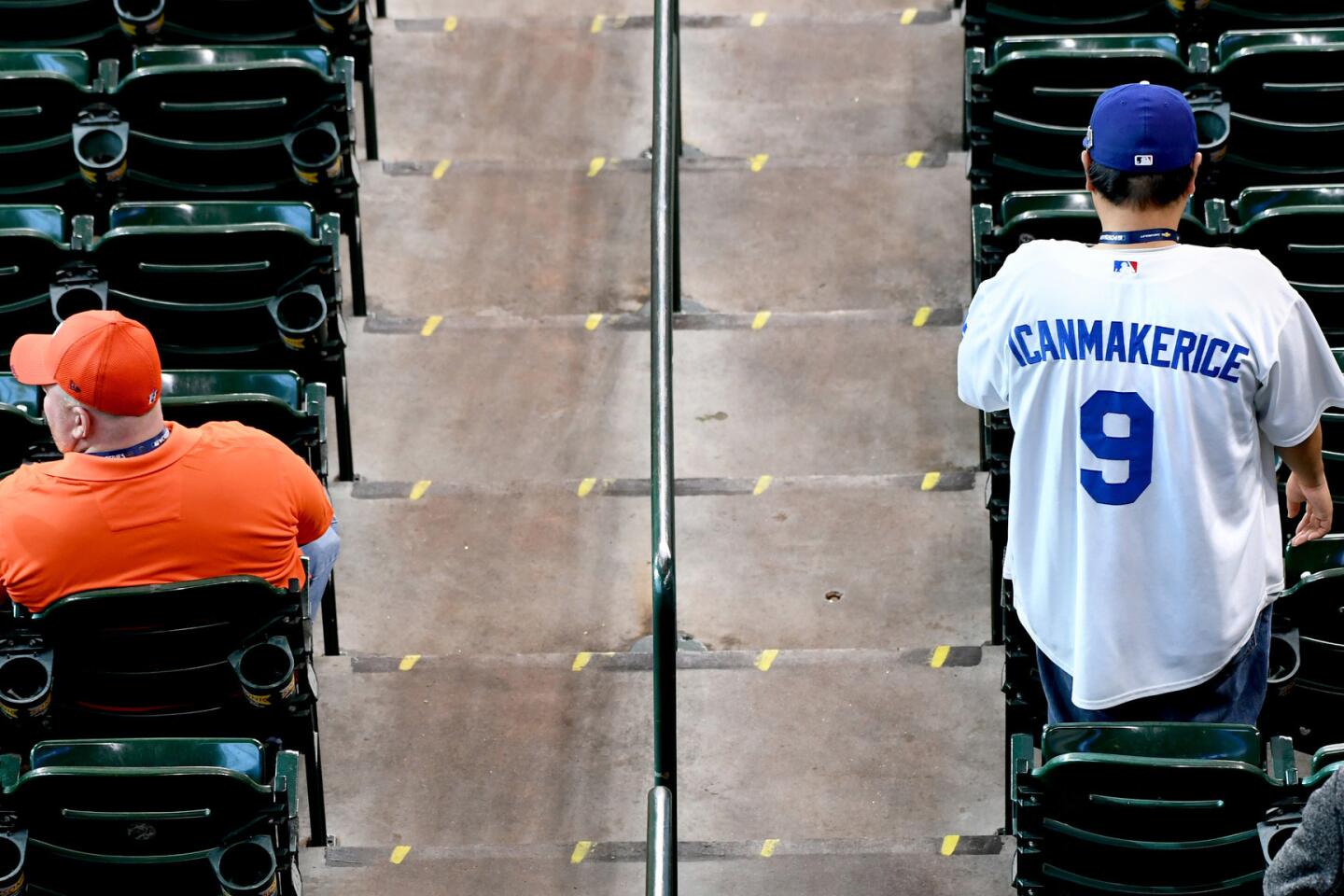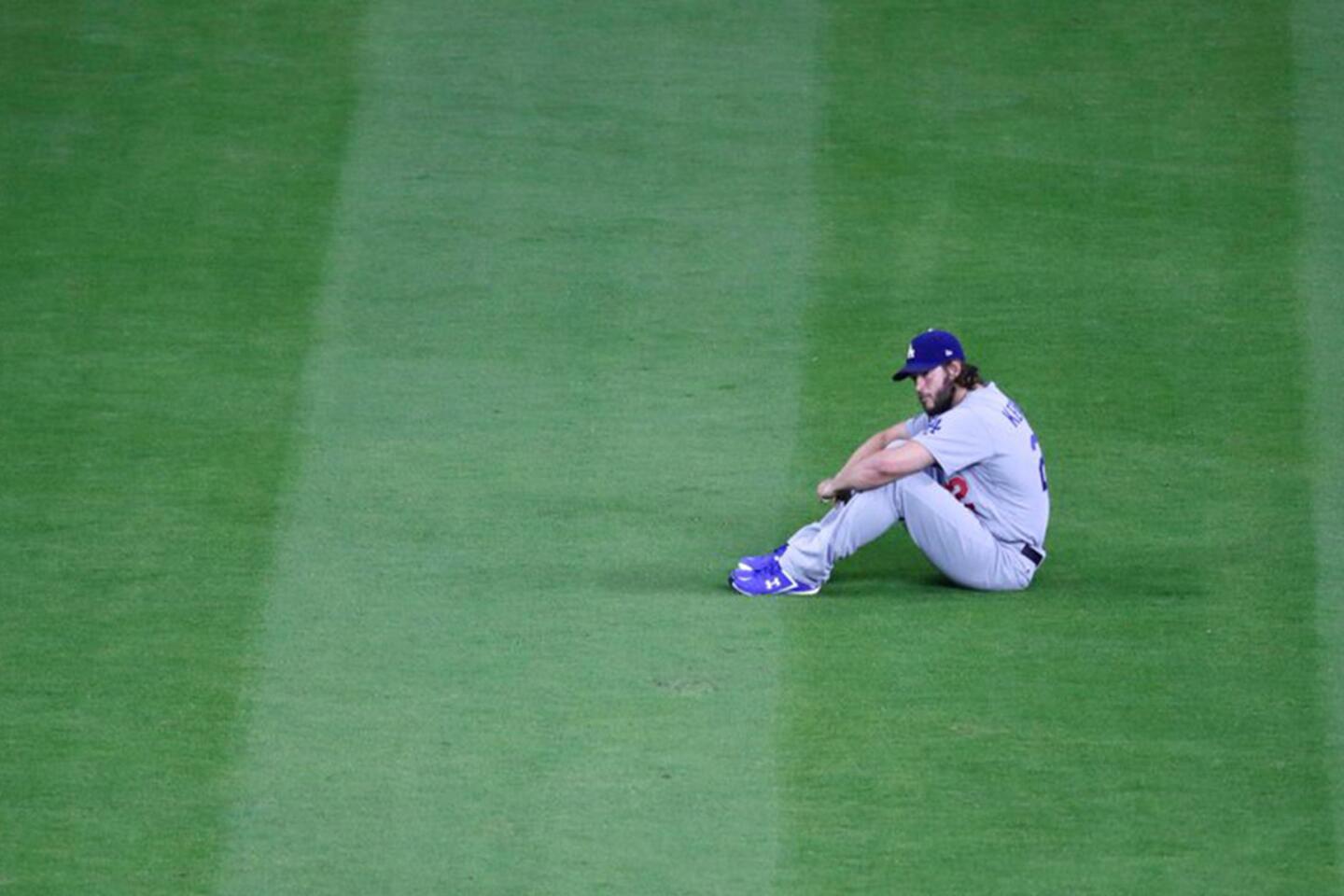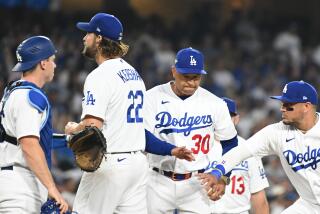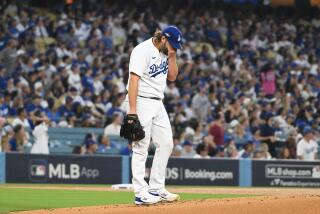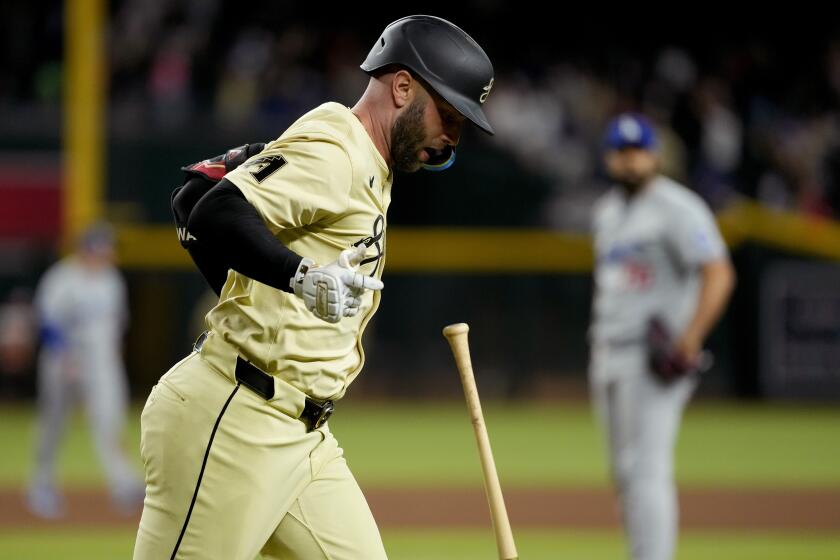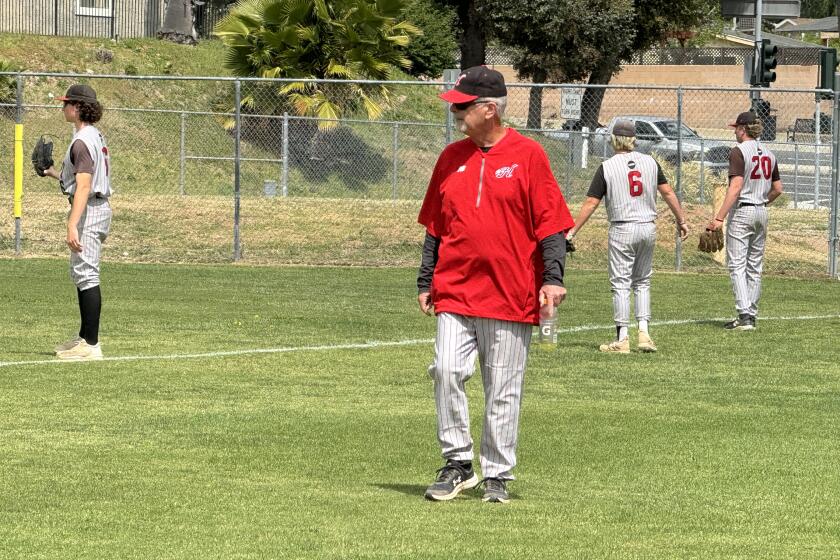Kenta Maeda’s fateful moment in Game 5 turned out to be critical for Dodgers
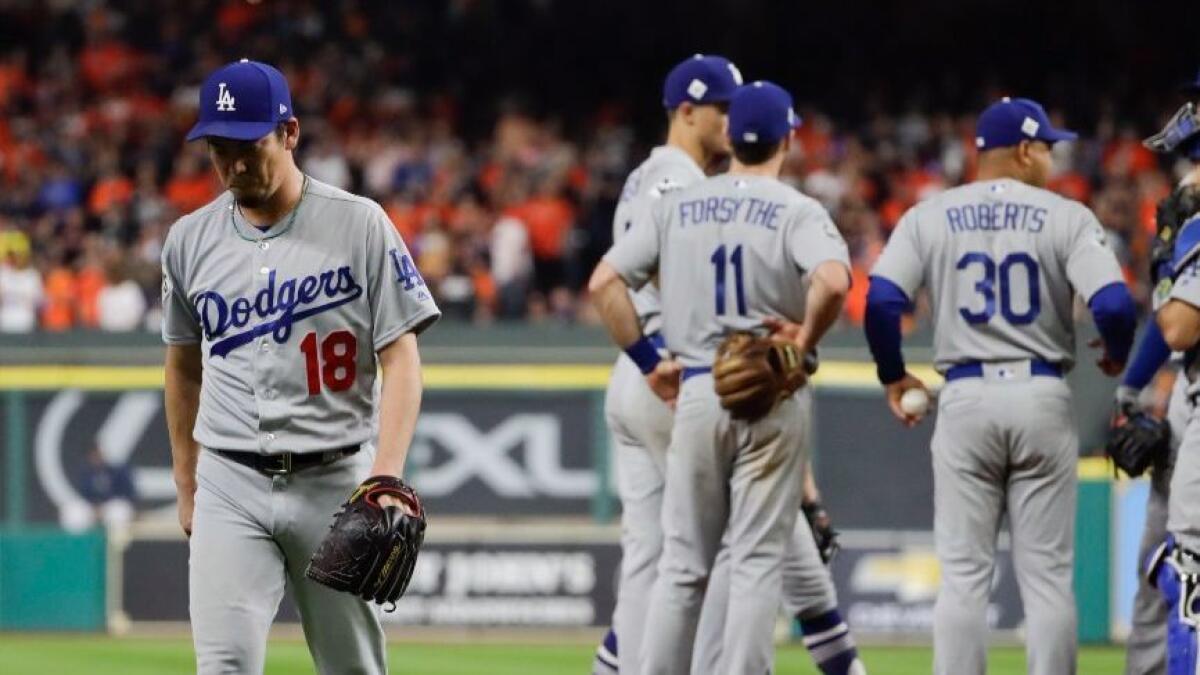
Dallas Keuchel won the American League Cy Young Award in 2015. Clayton Kershaw did not win the National League award that year, but he did in three of the previous four years.
No matter what numbers you might have run and what predictions you might have made, slim was the chance that neither pitcher would survive the fifth inning.
But neither pitcher did on Sunday, in Game 5 of the World Series, and not because of some trendy data point. Both pitchers got hit, and hit hard.
That left it to … well, to the other starting pitchers. The Astros used two, Collin McHugh and Brad Peacock, who combined to give up five runs in 31/3 innings. The Astros won 13-12, so that’s a big “whatever” for them. They are one win from a World Series championship, with Justin Verlander on deck.
The Dodgers turned to Kenta Maeda, and that did not work out so well, either. His failure turned out to be critical.
“It’s really the end of the season so, regardless of how I feel, I’ve got to compete and put up results,” Maeda said via an interpreter.
At a time when just one out might have halted the Astros’ rampage, at least for the moment, Maeda gave up a three-run home run to Jose Altuve, a bomb that made a lead evaporate for the visiting team and made a ballpark come alive for the home team.
Maeda had faced 30 batters in the postseason, without giving up either a run or an extra-base hit. He gave up both to the first batter he faced on Sunday, the final swing that accounted for the final ugly numbers on Kershaw’s ledger.
Kershaw, staked to a 4-0 lead, gave up four runs in the fourth inning. The Dodgers put up three in the top of the fifth, and Kershaw went back out for the bottom of the fifth. He did not finish the inning, and the box score shows he gave up six runs in 4 2/3 innings.
As a starter, Maeda is used to an unhurried warmup. And, as the fifth inning proceeded, there was no sense that Maeda would be needed, at least not in that inning.
Kershaw got the first two outs. He was one pitch from getting out of the inning, but George Springer worked the count full and walked, on eight pitches.
Alex Bregman walked, on 10 pitches, and that was the end for Kershaw. Maeda, who had not started to warm up until late in the inning because Kershaw got those first two outs so quickly, hurried into the game.
“I had to rush a little bit,” Maeda said, “but I felt like I was 100% prepared going in.”
Altuve came out swinging. He swung and missed on the first pitch. He took two balls, hit a loud foul, took a third ball, hit another loud foul. He was swinging hard, he had Maeda timed, and every pitch was in the 85-87 mph range.
Maeda threw the next pitch as hard as he could, but terribly and unfortunately straight. The pitch was clocked at 94 mph. Altuve crushed it, 415 feet worth of Mighty Mite power. The Astros had tied the score 7-7, and completed their second comeback in two innings against the mighty Kershaw.
In Japan, Maeda had made 218 appearances, with 217 coming as a starter. His first 45 appearances with the Dodgers — three of them in last year’s playoffs — also came as a starter.
In June, however, with the Dodgers juggling an overload of starters, they tried Maeda twice in relief. It worked well enough that the Dodgers decided to try it again in October.
He had been a revelation. The Dodgers used him five times in the first two rounds of the playoffs, for an inning each time. He was perfect: 15 up, 15 down, seven strikeouts. The Dodgers dared to expand his workload in the World Series, and it worked just fine until Sunday.
In Game 2, he worked 11/3 innings, not perfect but still scoreless. In Game 3, he worked 22/3 innings, not perfect but still scoreless.
His postseason earned-run average remained at 0.00, but he threw 42 pitches in Game 3. That was more pitches than he had thrown in the first two rounds of the playoffs, combined.
“As a reliever, it’s hard to be 100% fresh,” Maeda said, “because you do have to prepare every day.”
He might have been worn down. He said he would be ready for Game 6. But all we know for sure is that his postseason ERA is no longer zero, and the Dodgers’ tragic number for elimination is one.
The Los Angeles Dodgers in the 2017 World Series
Follow Bill Shaikin on Twitter @BillShaikin
More to Read
Get our high school sports newsletter
Prep Rally is devoted to the SoCal high school sports experience, bringing you scores, stories and a behind-the-scenes look at what makes prep sports so popular.
You may occasionally receive promotional content from the Los Angeles Times.

